CD 303 with Multiple Faults , Repair & Refurbisch
CD 303 , won’t play discs ,
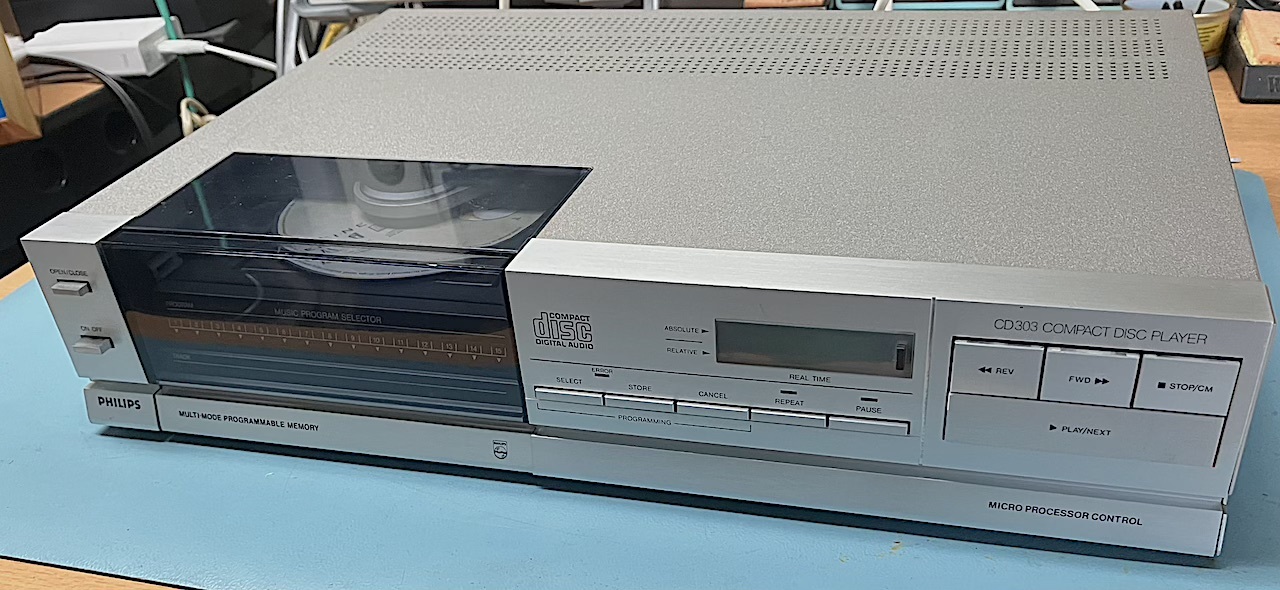
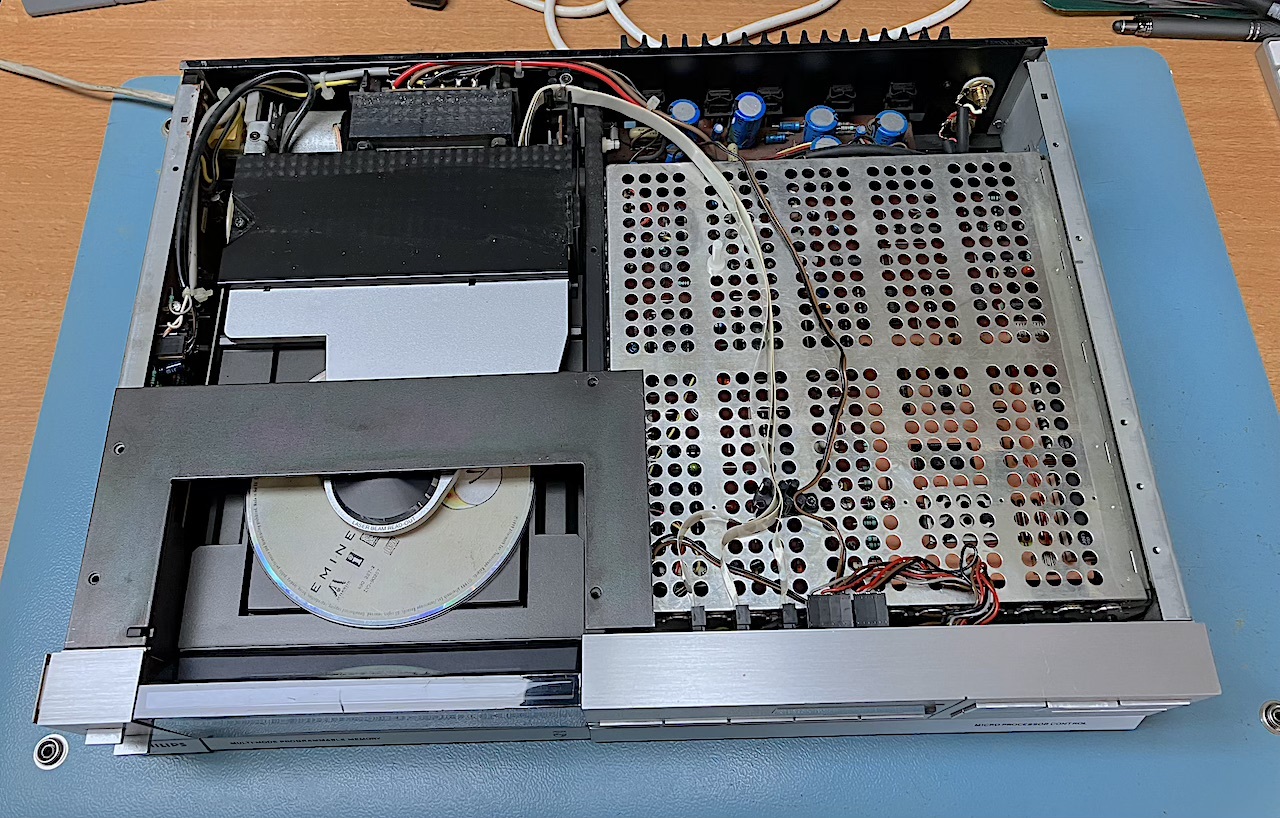
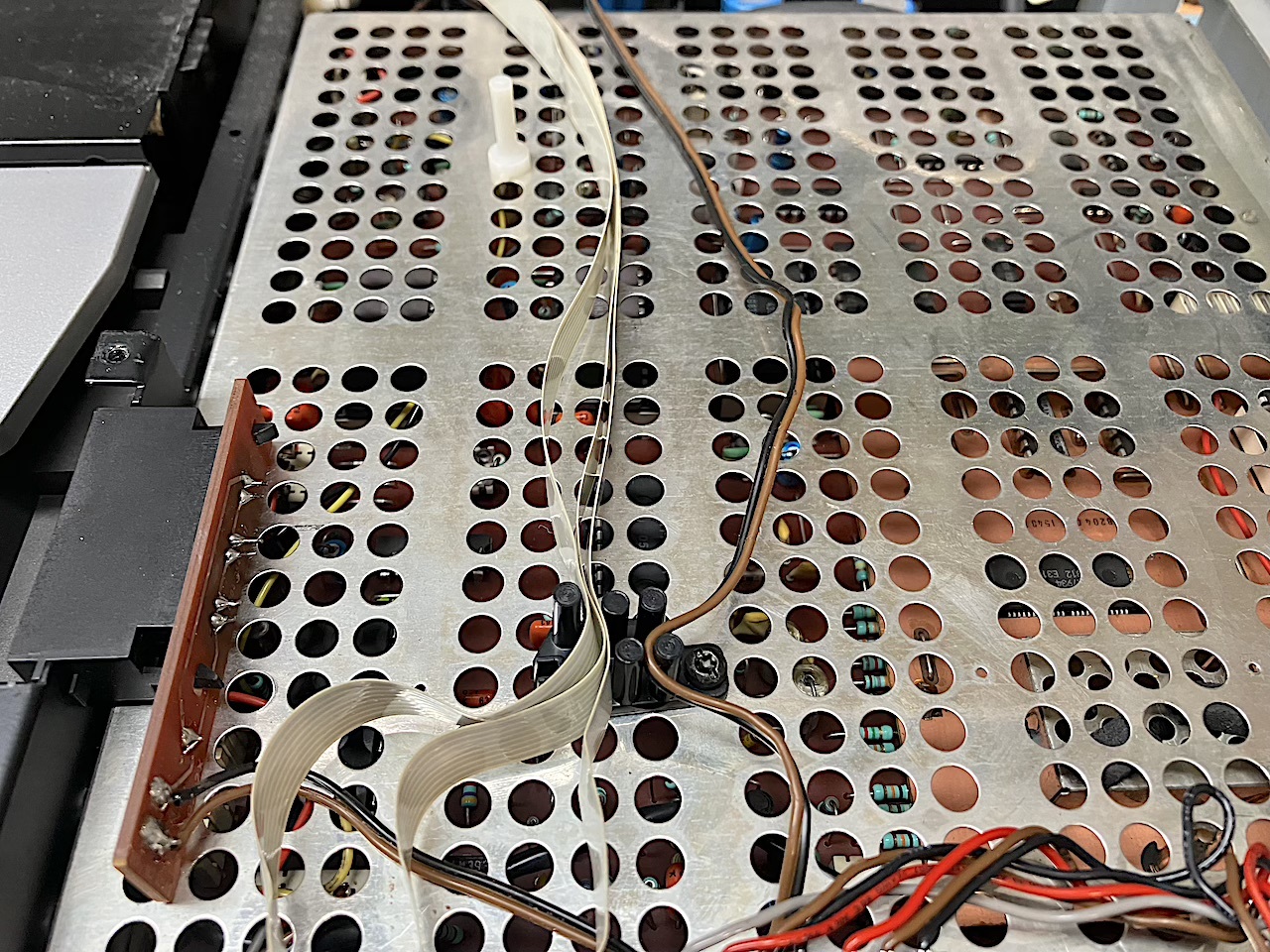
interconnect board
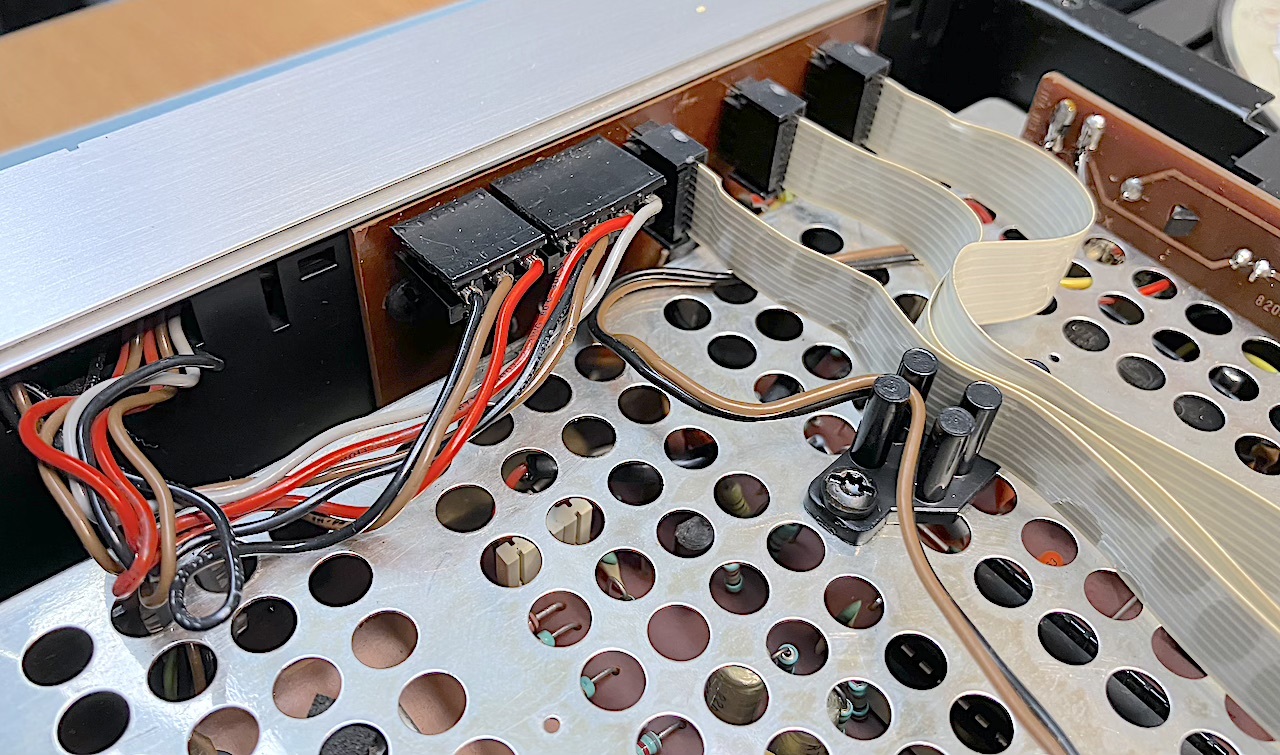
Already added cinch chassis connectors
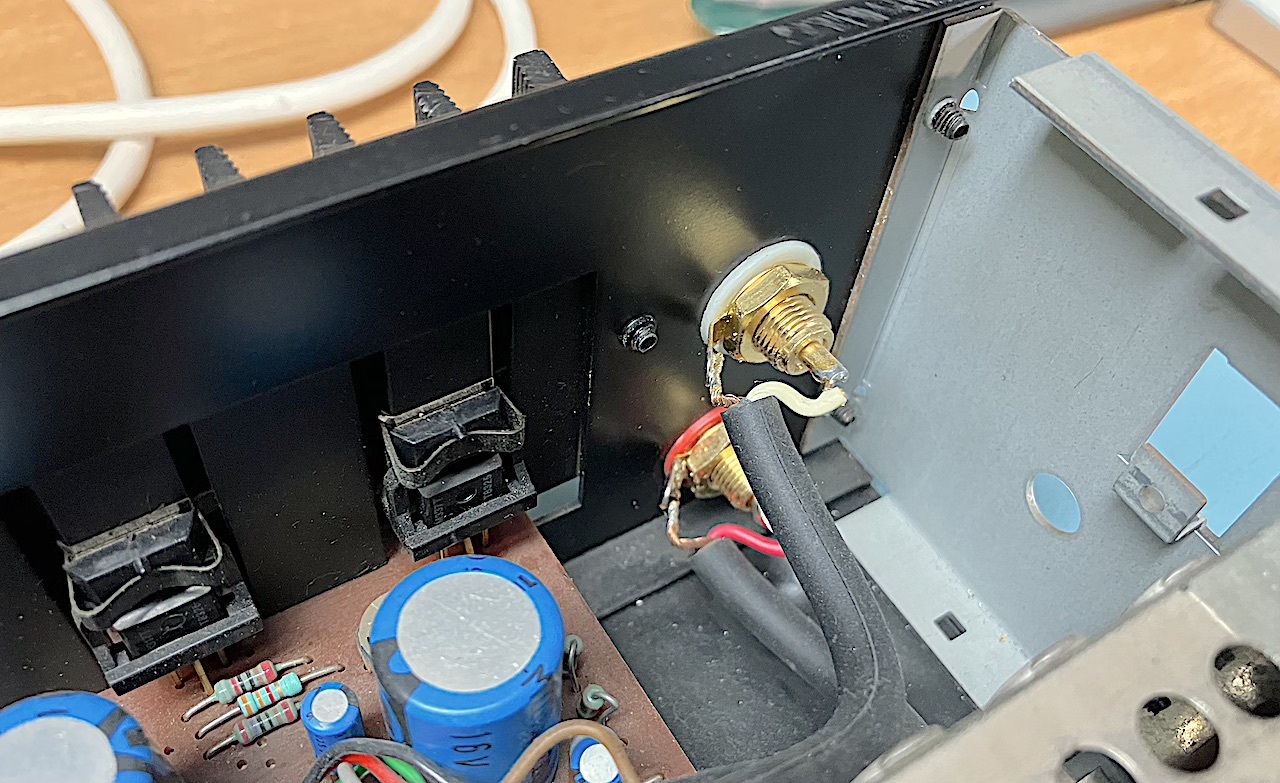
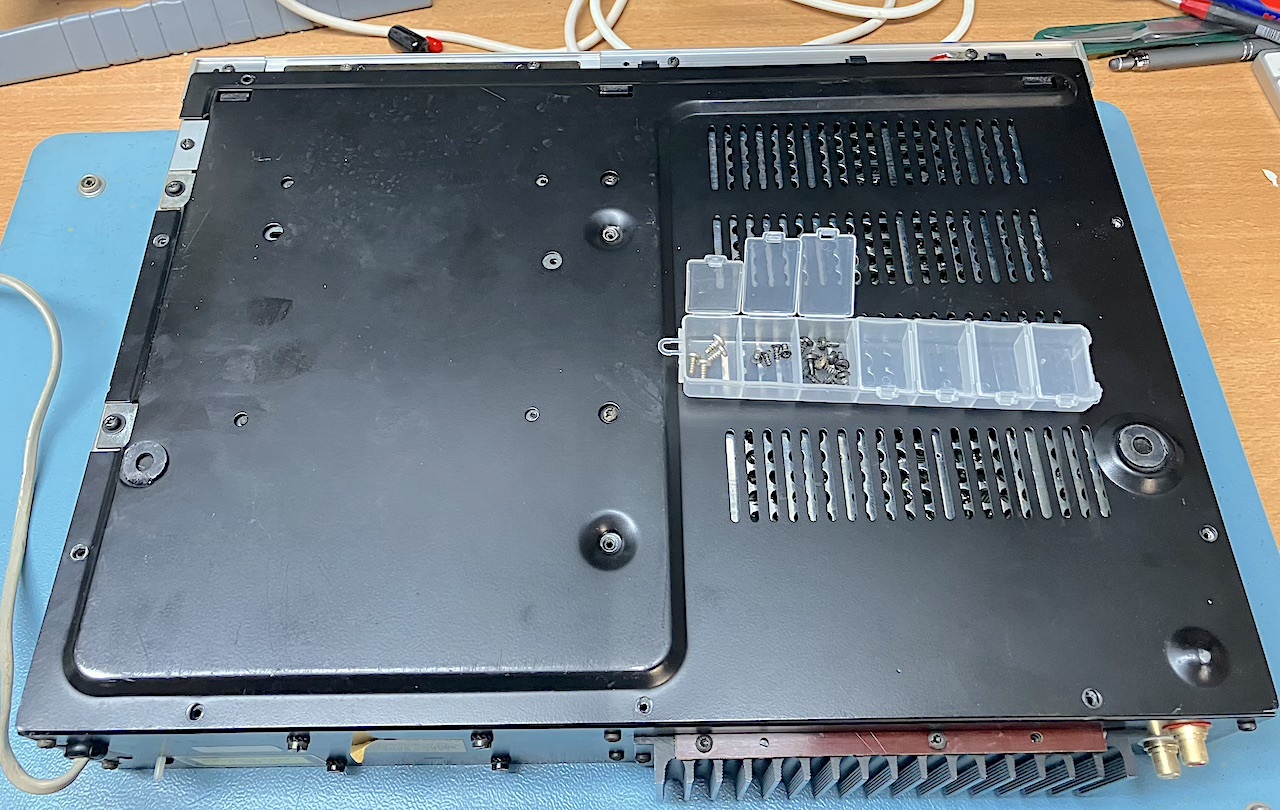
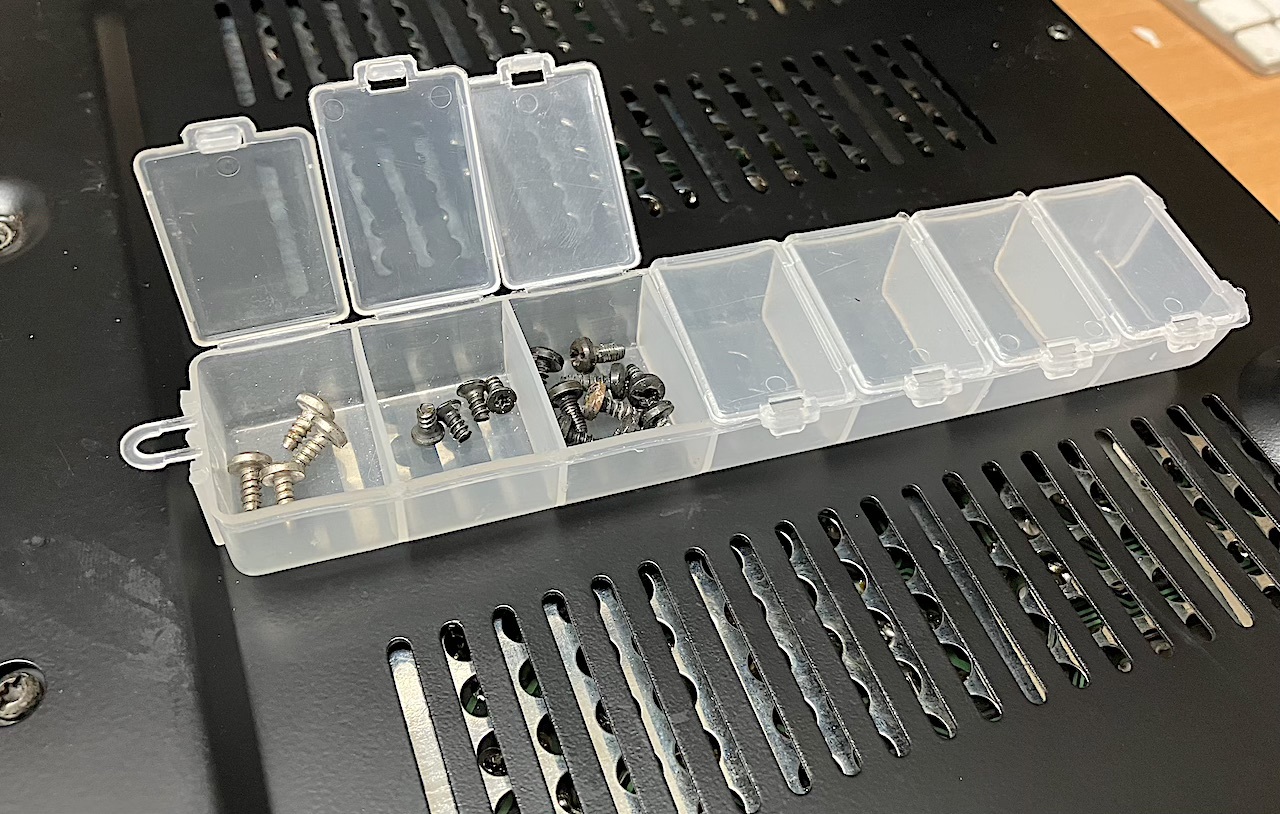
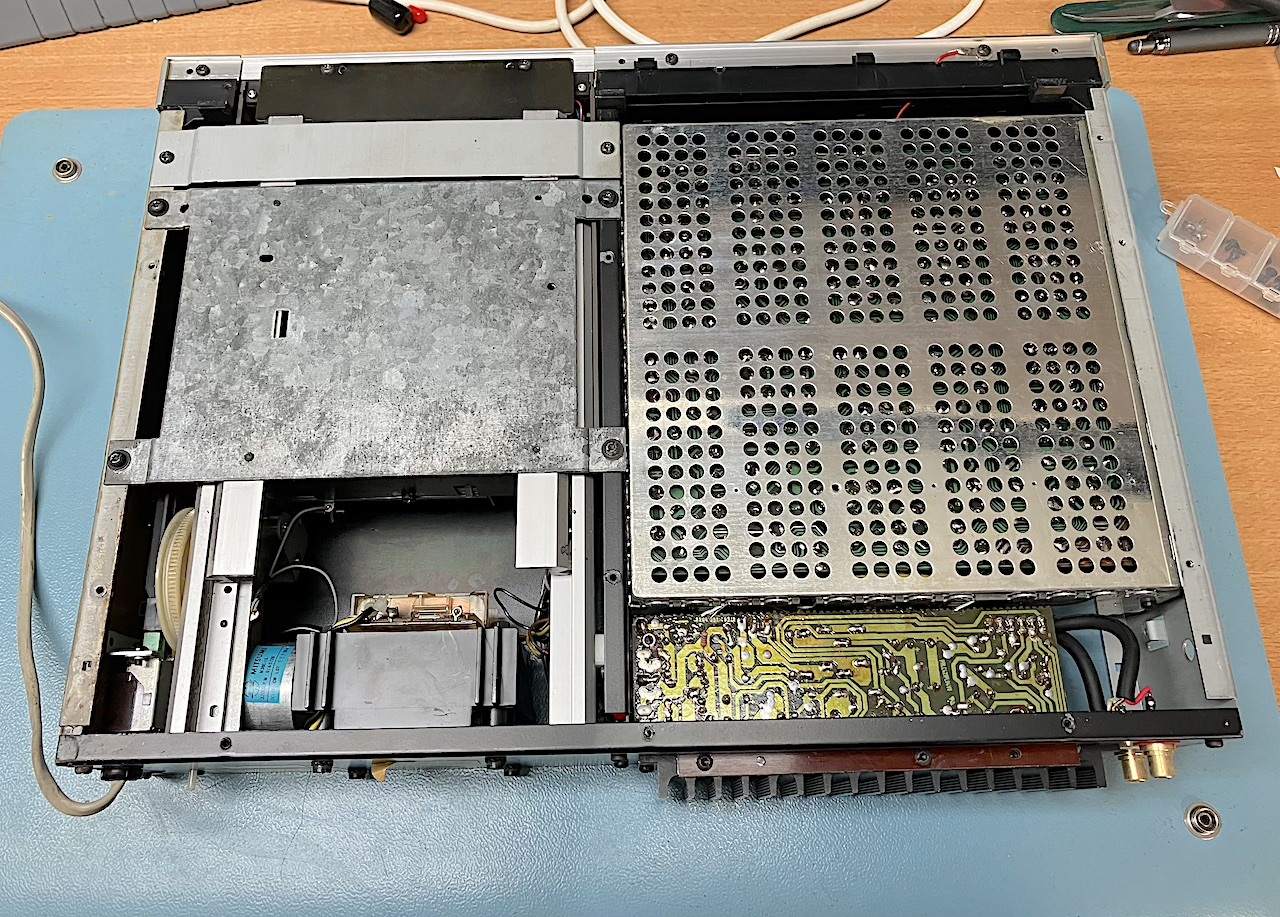
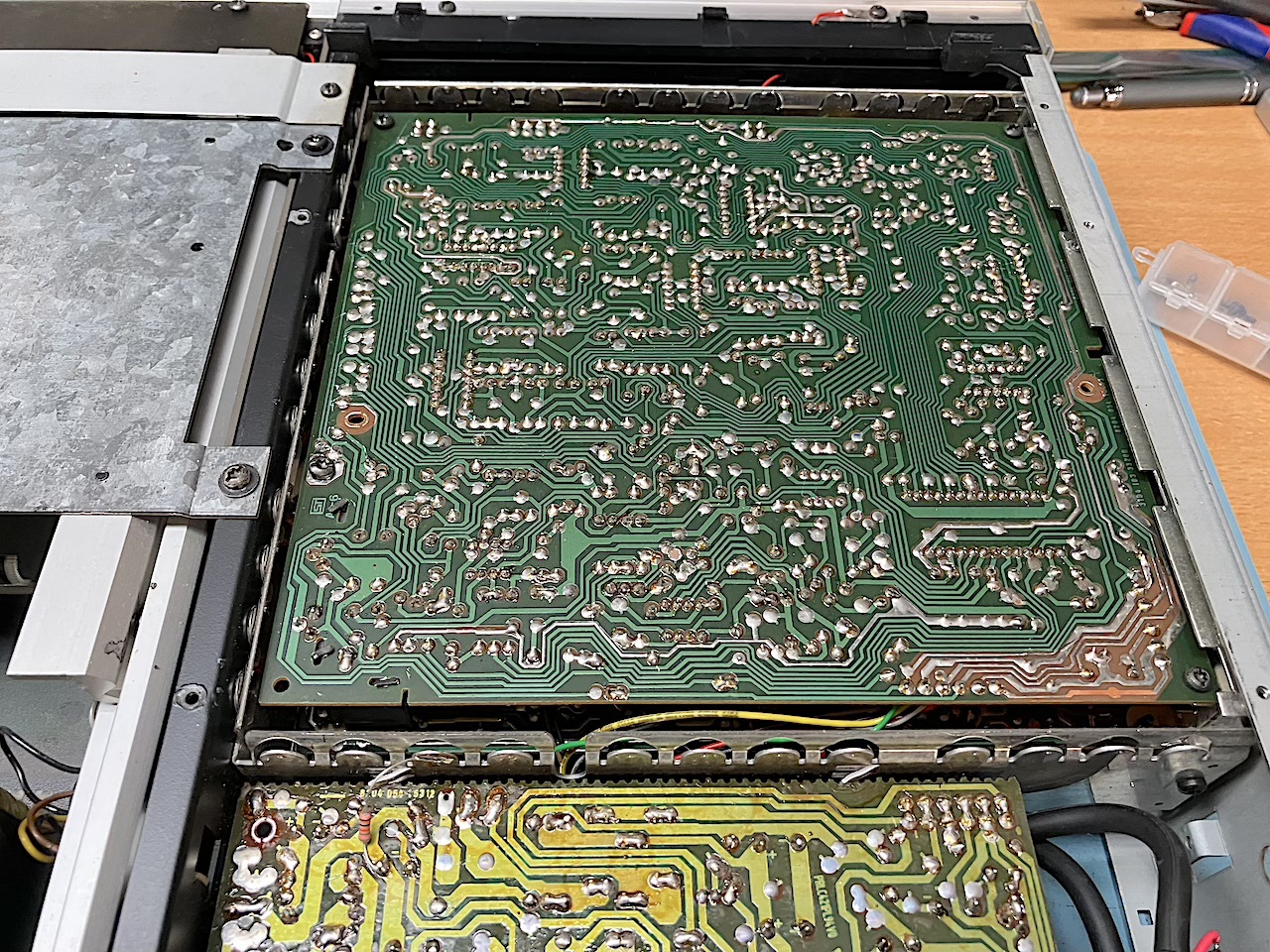
There has been done a lot of resoldering already
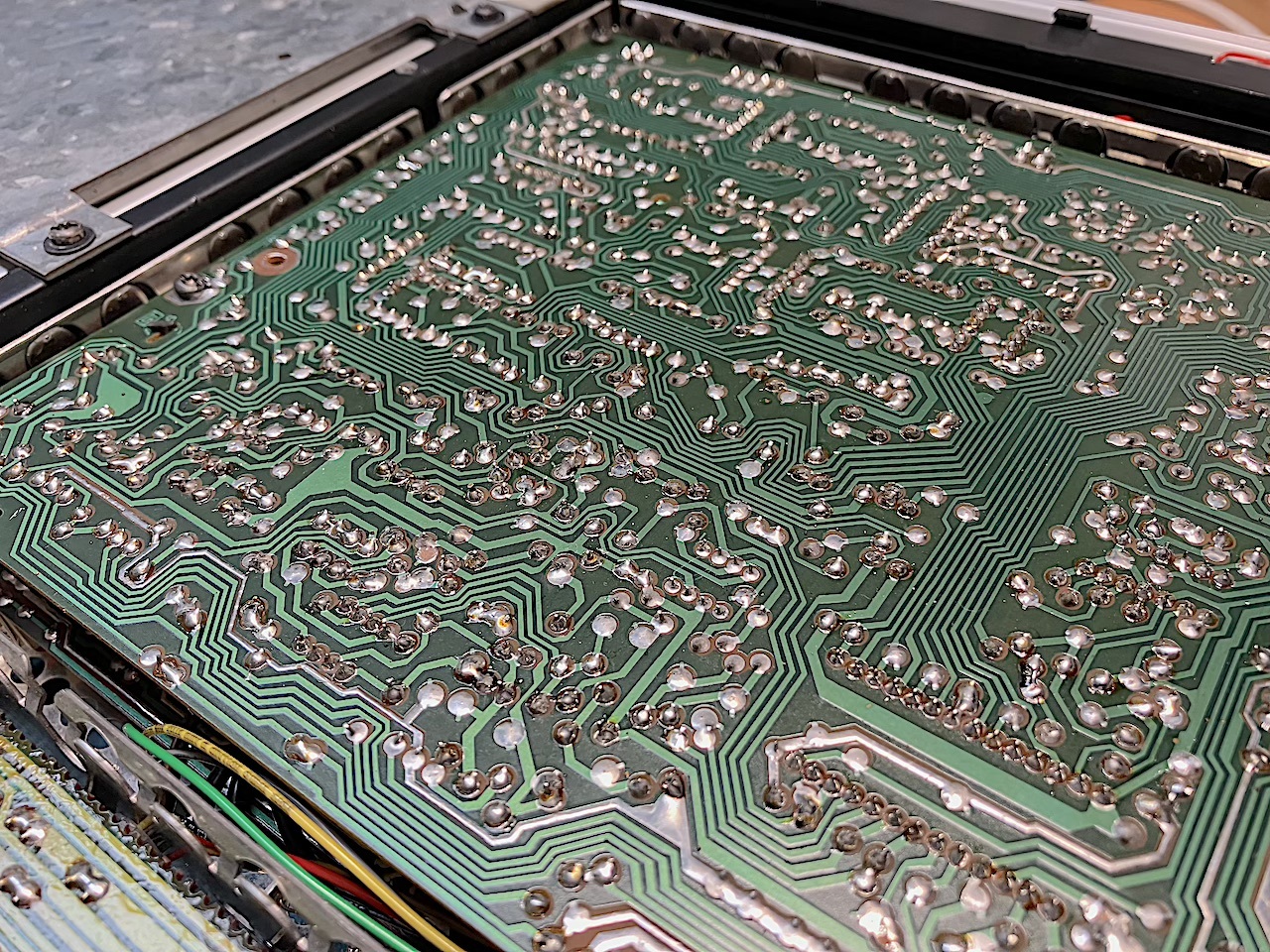
Won’t read discs, output Reed-relais switching fast
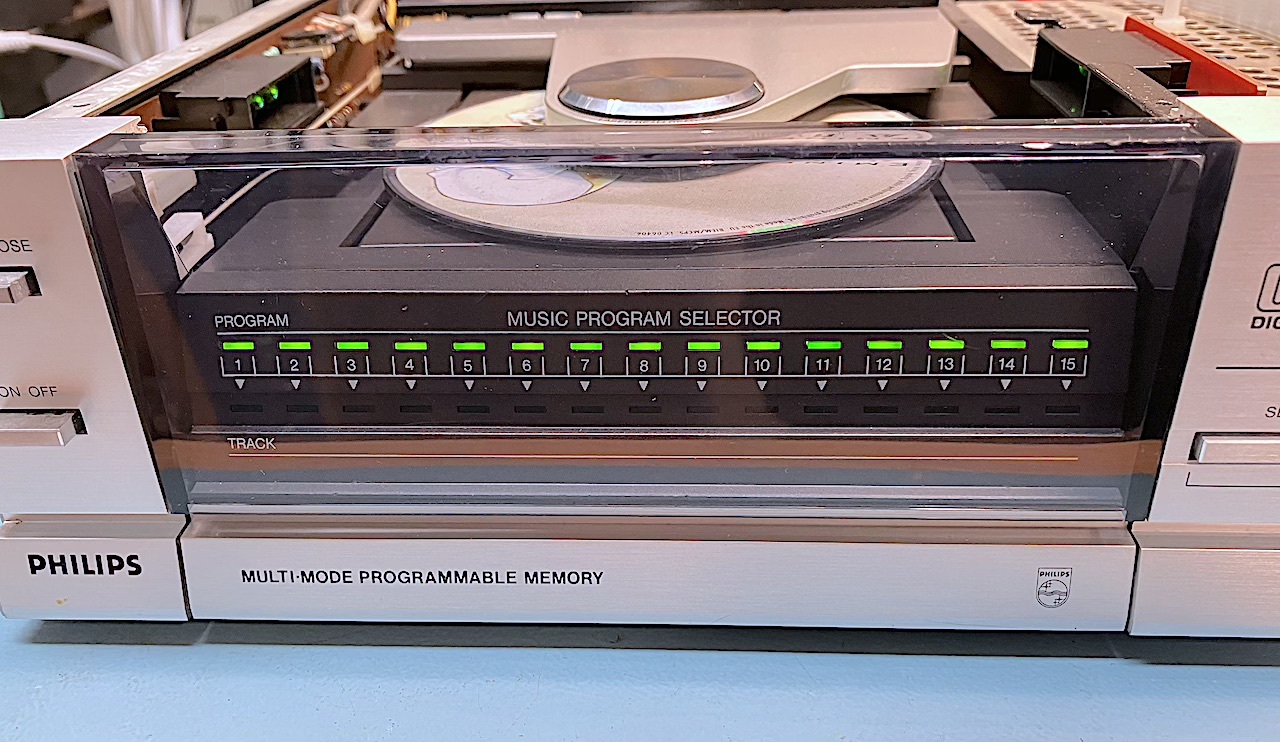
Fixed the powersupply , Capicitors where really bad.
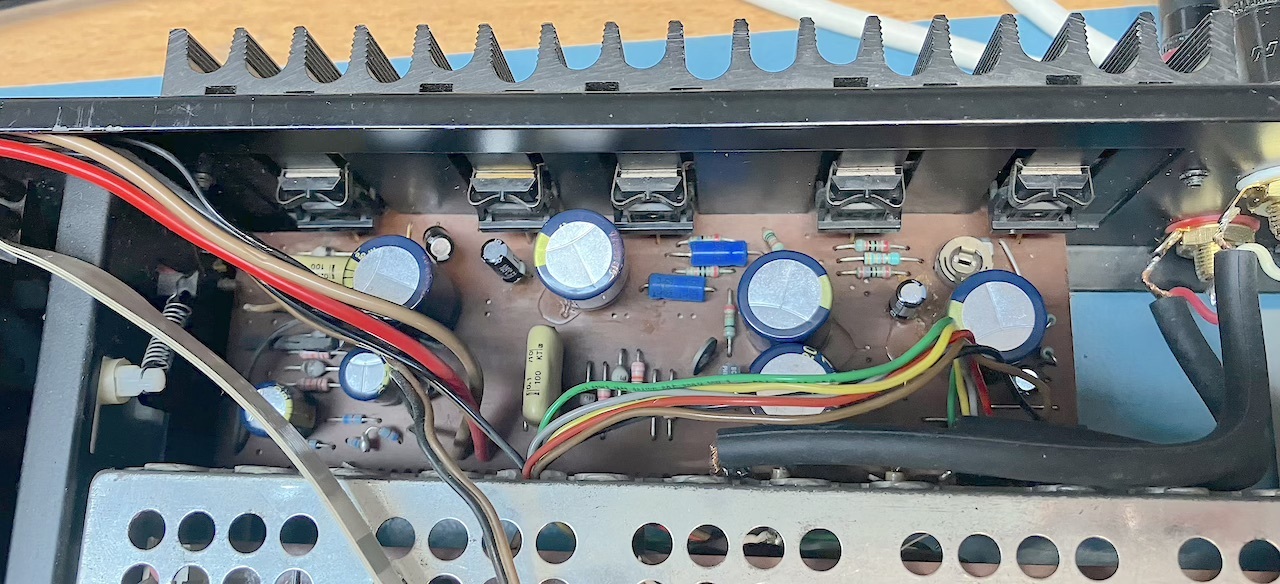
Quick Test there is audio 🙂
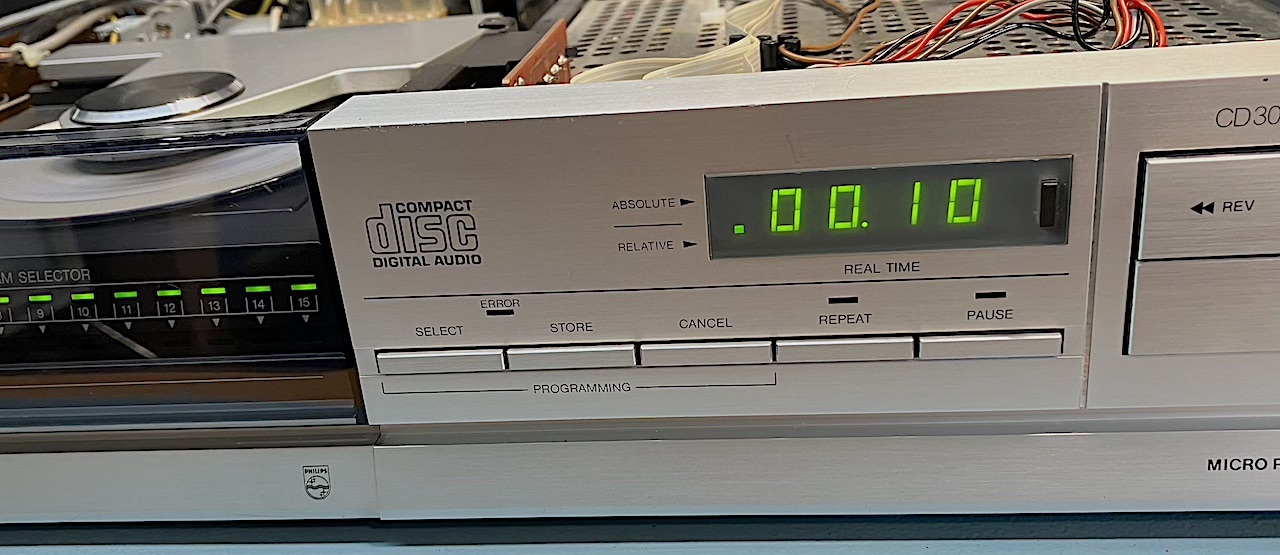
New capicitors
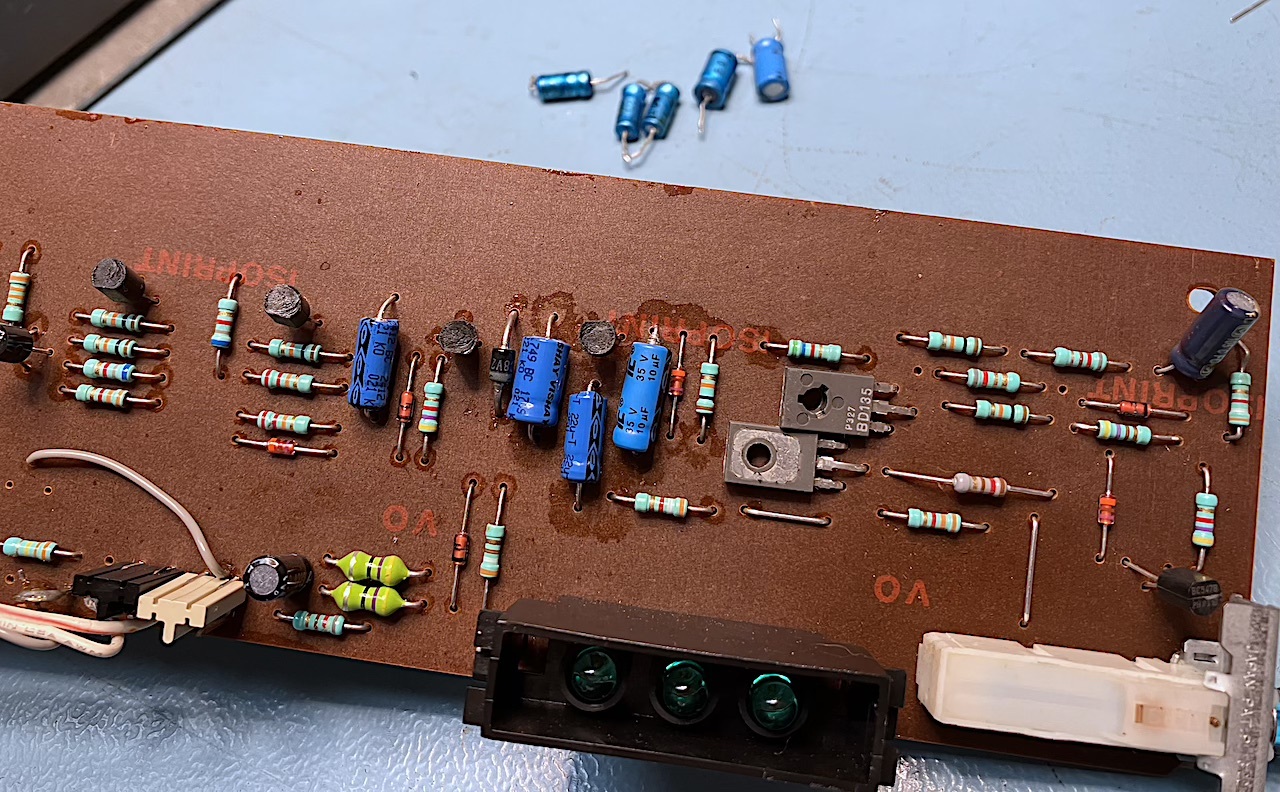
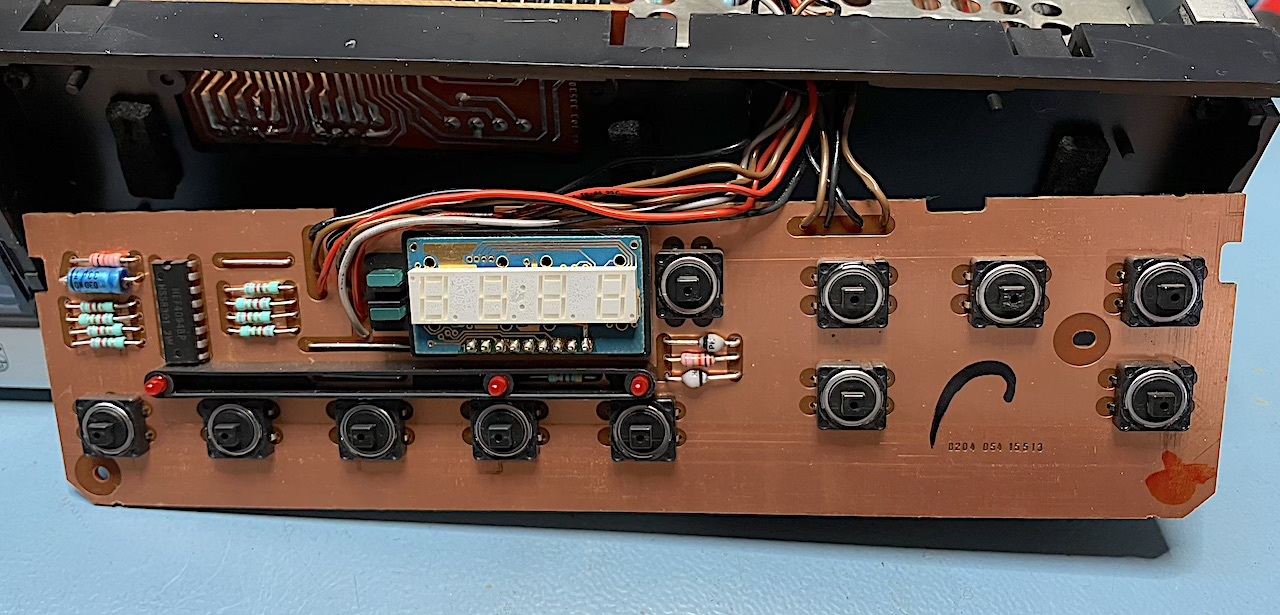
New Display , New Capicitor , New Switches
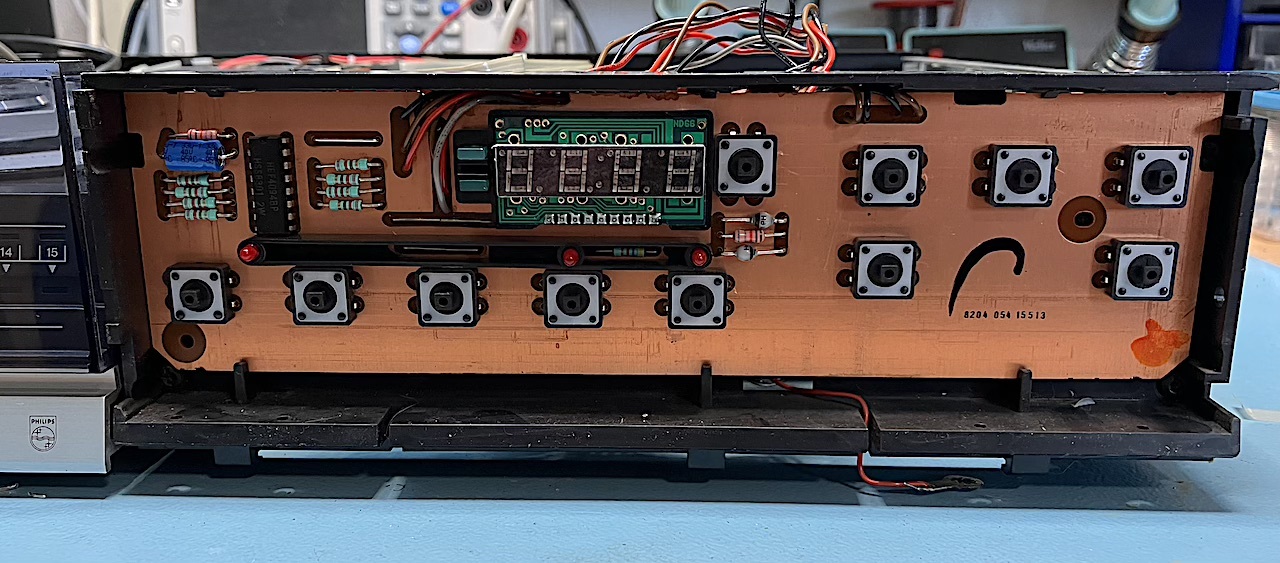
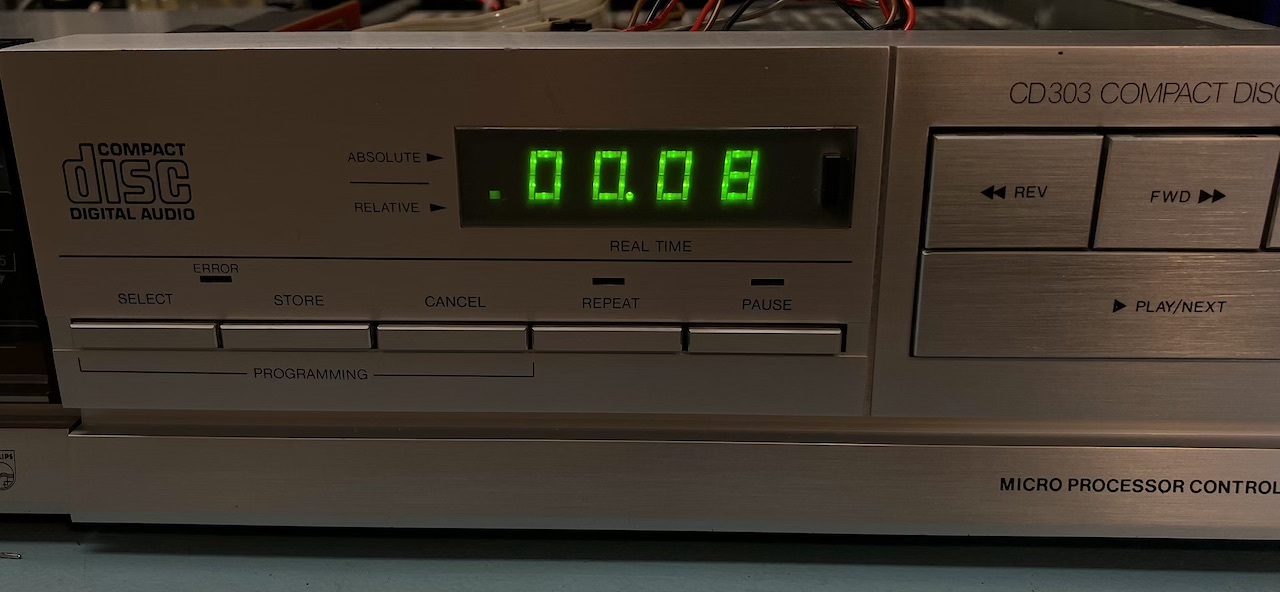
Resolder interconnects
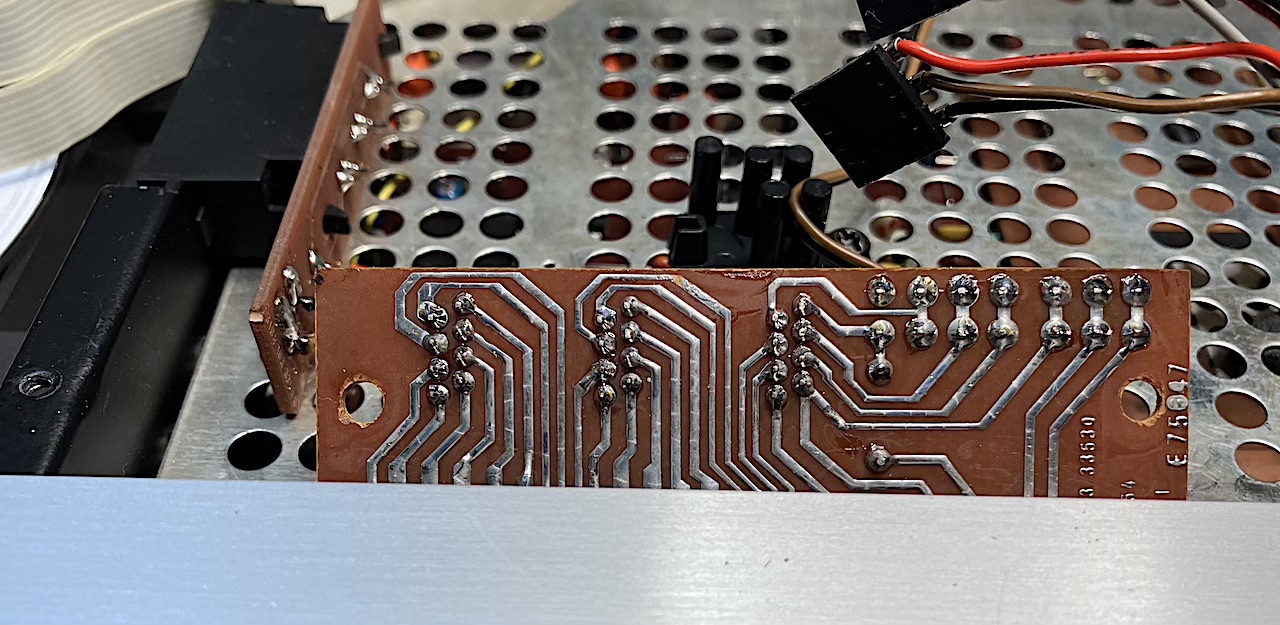
Who has removed the Conectors , and why..?
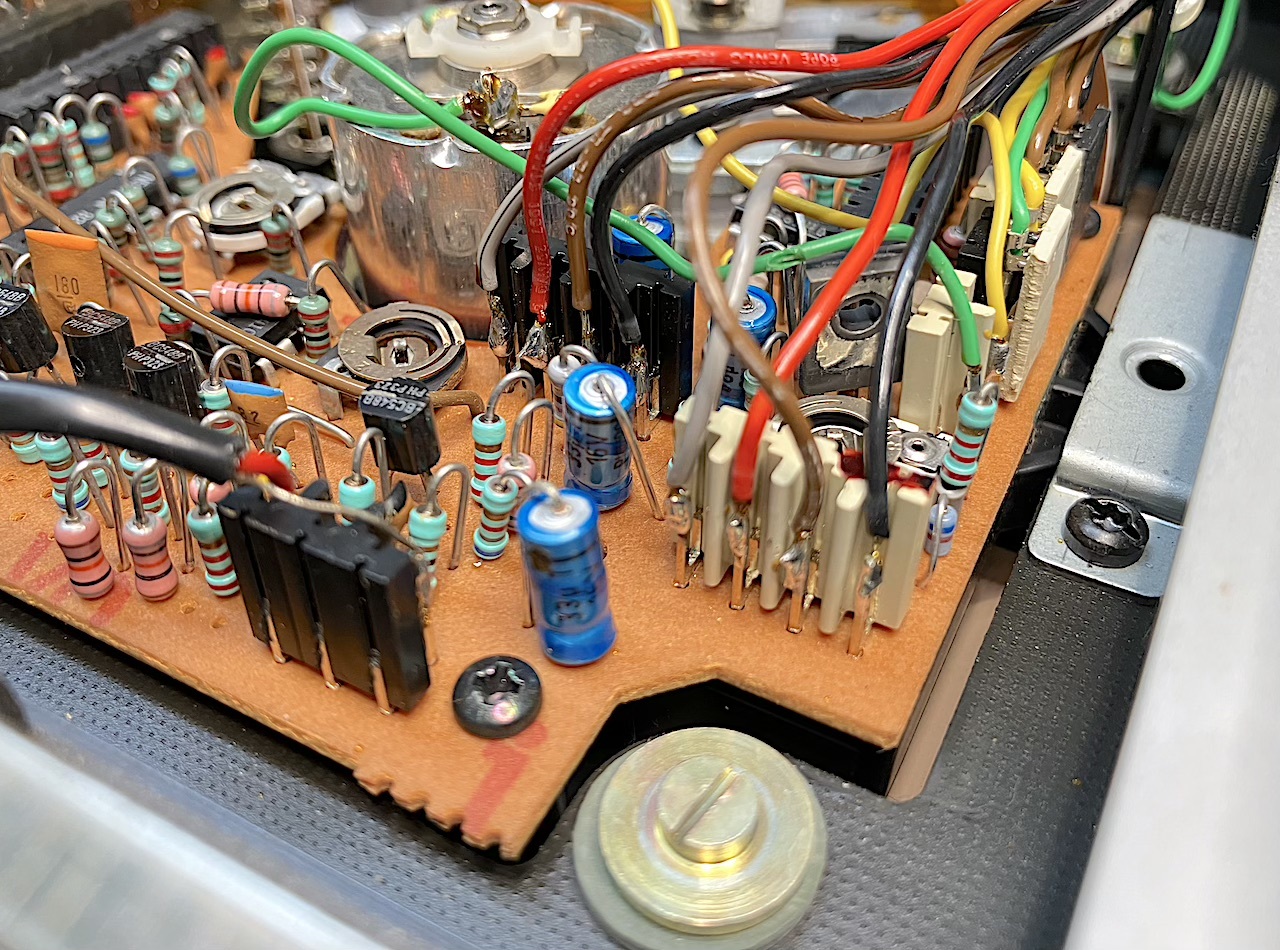
Track & selection leds resoldering
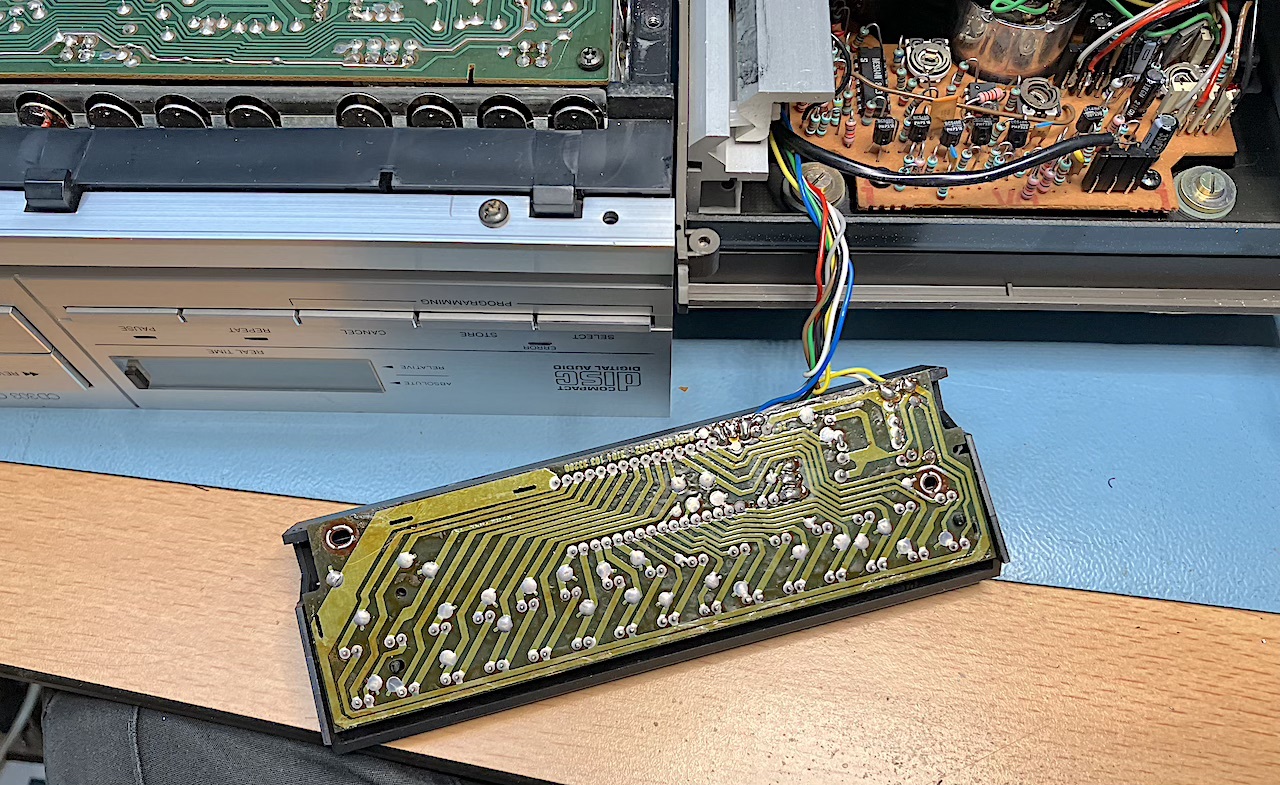
Player stopt working..:-( , Found some more trouble ,
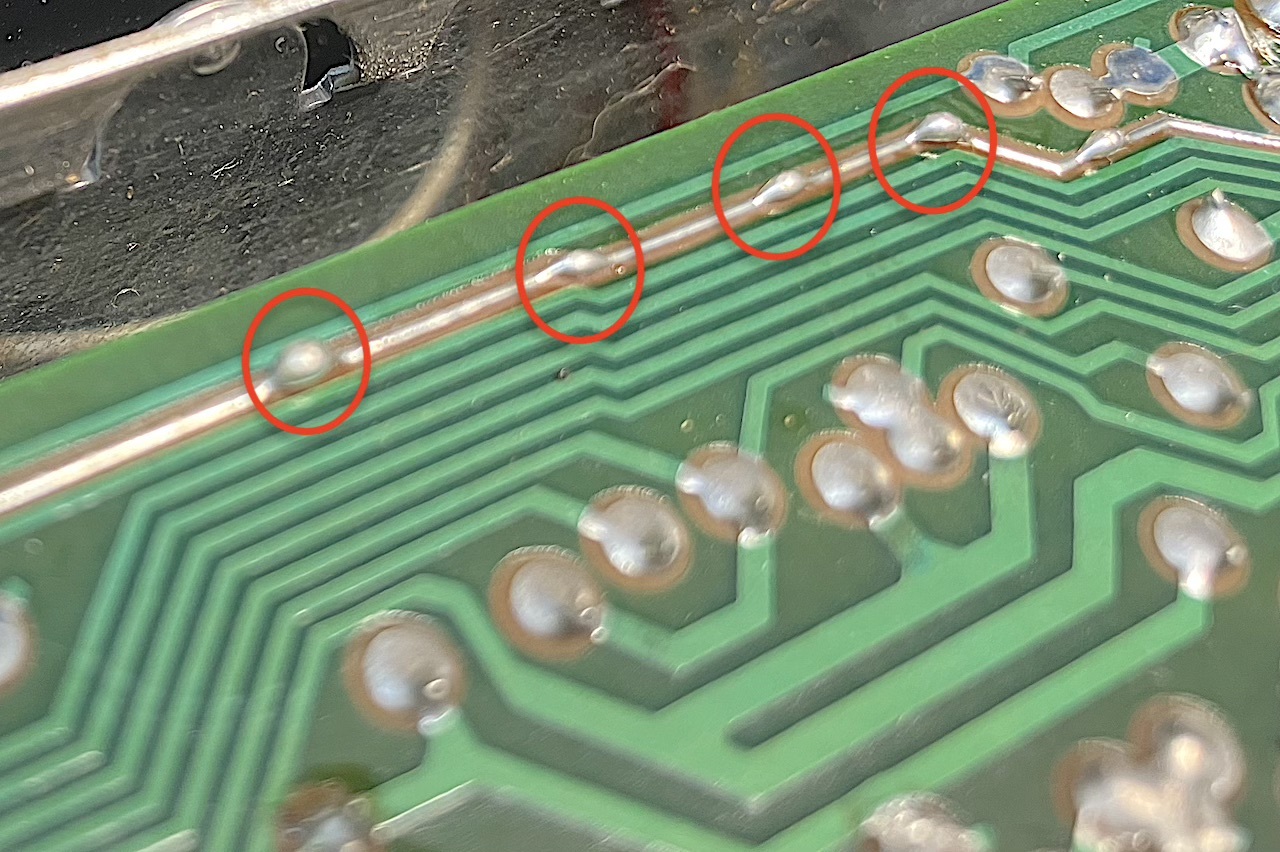
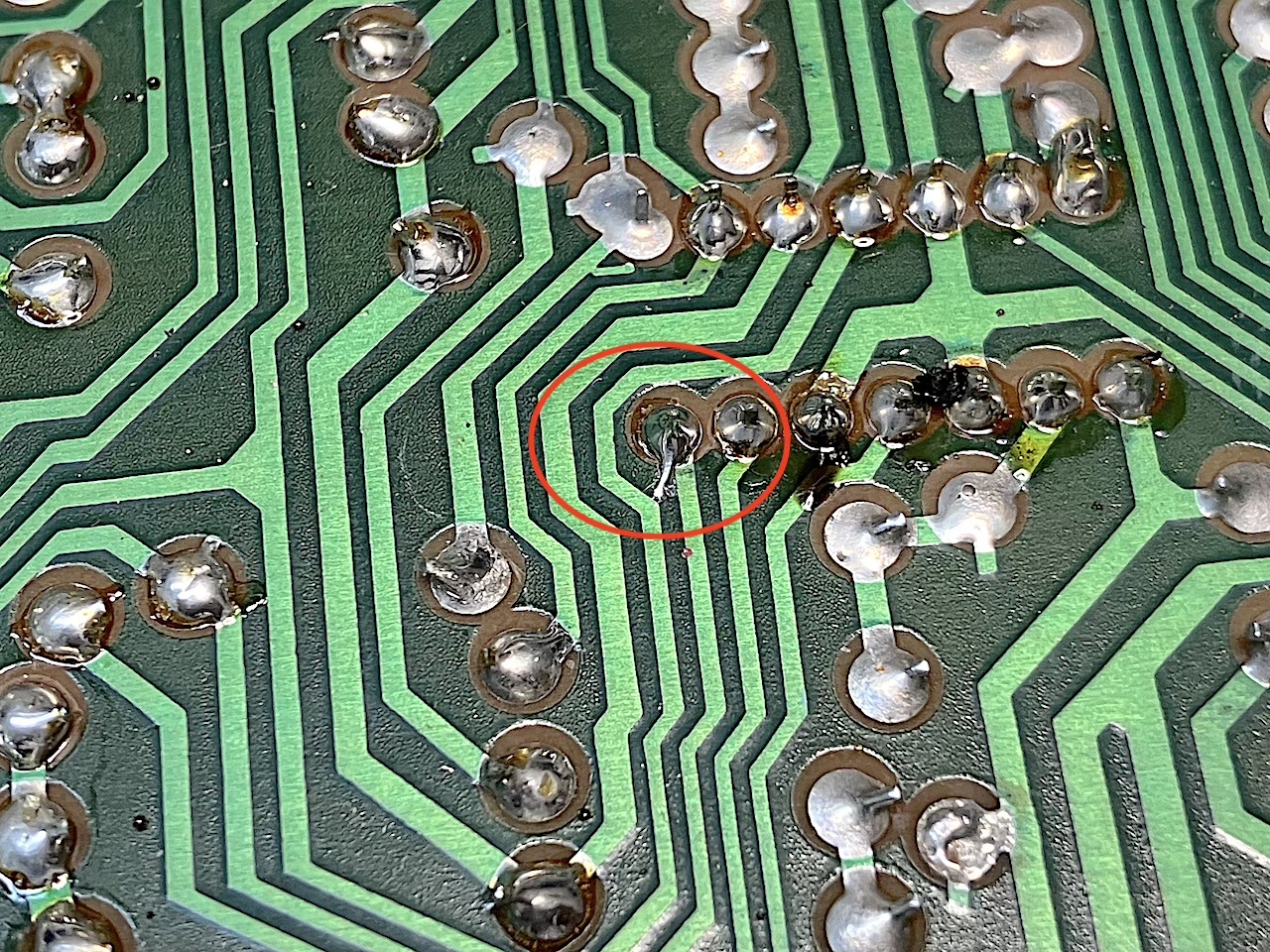
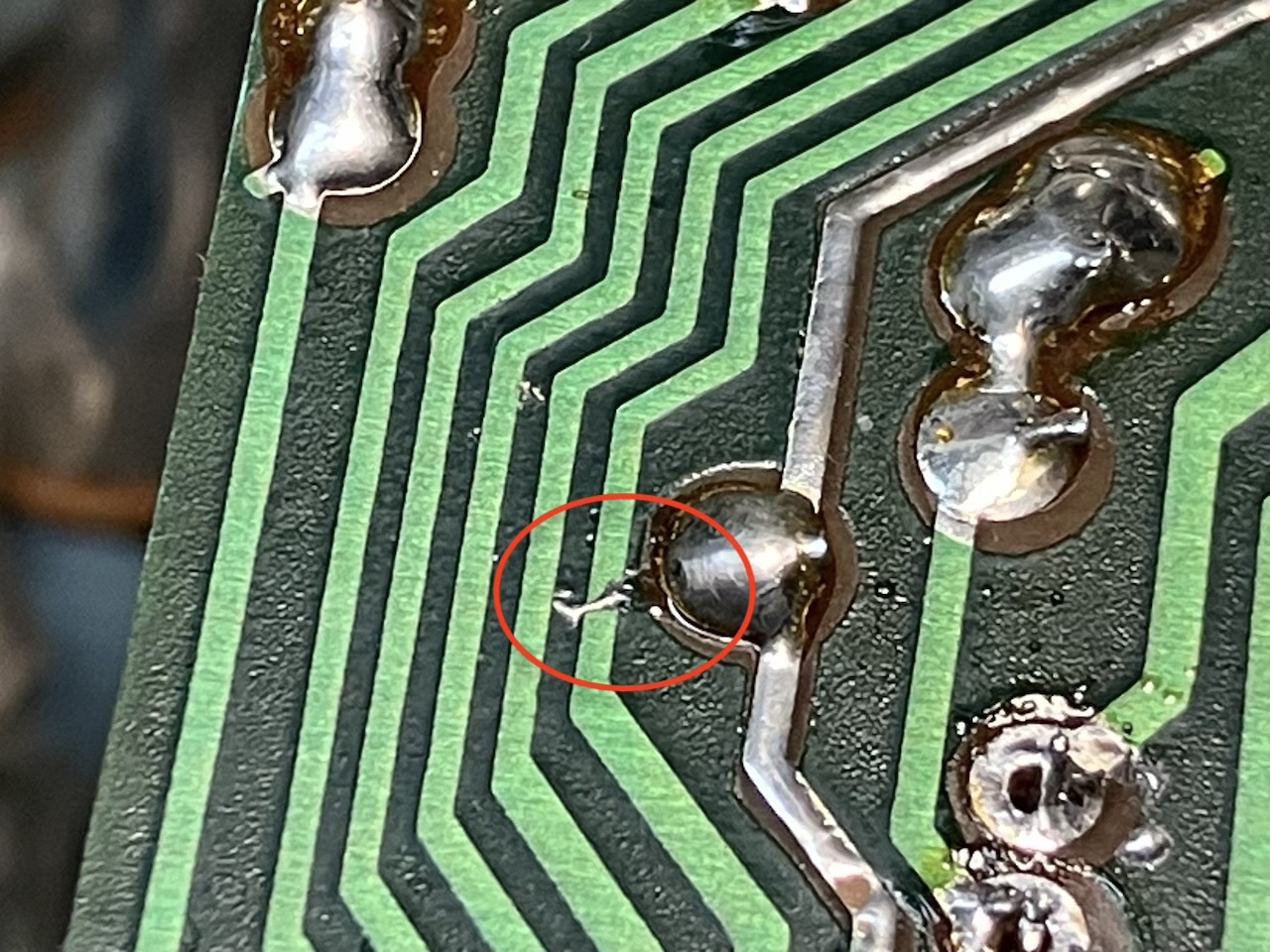
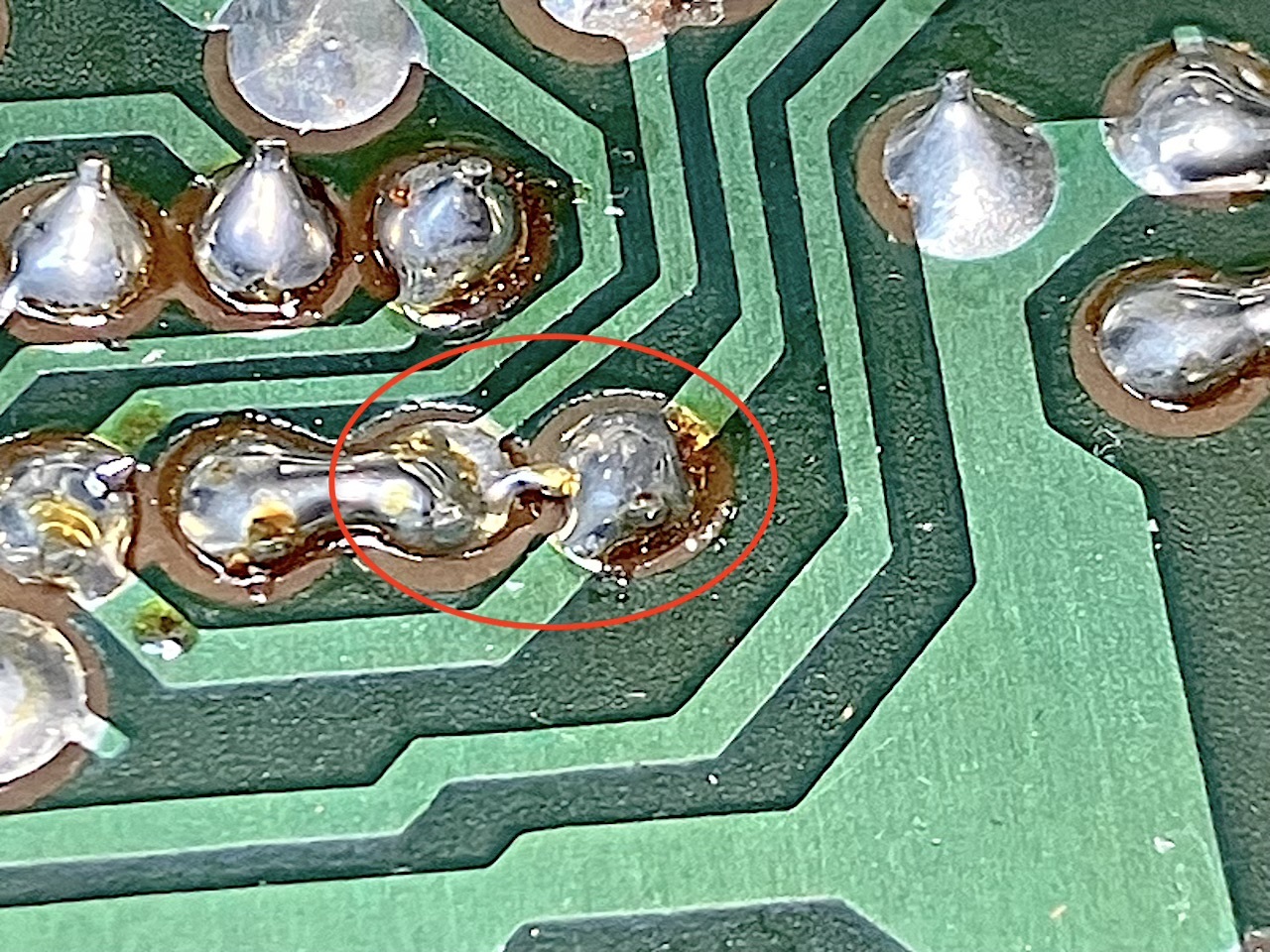
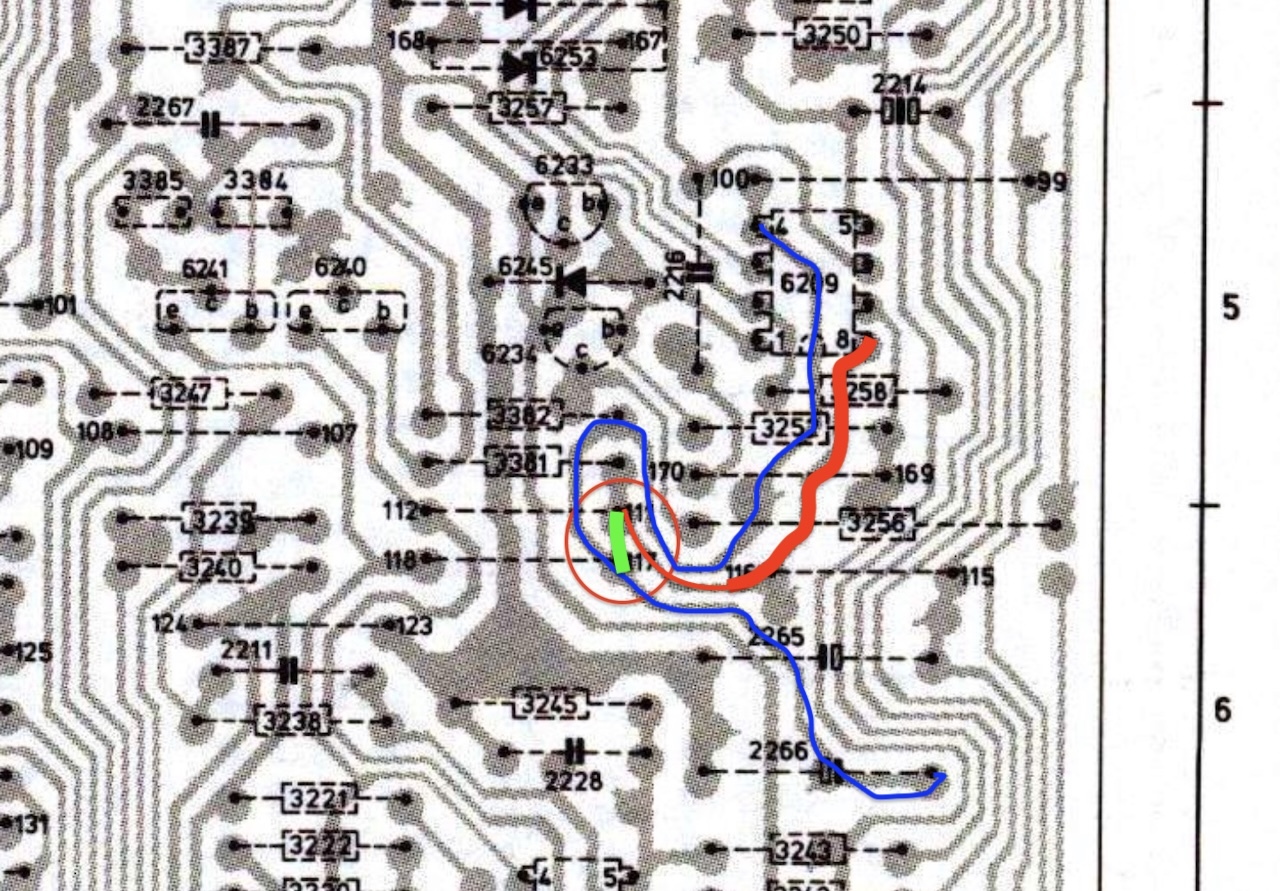
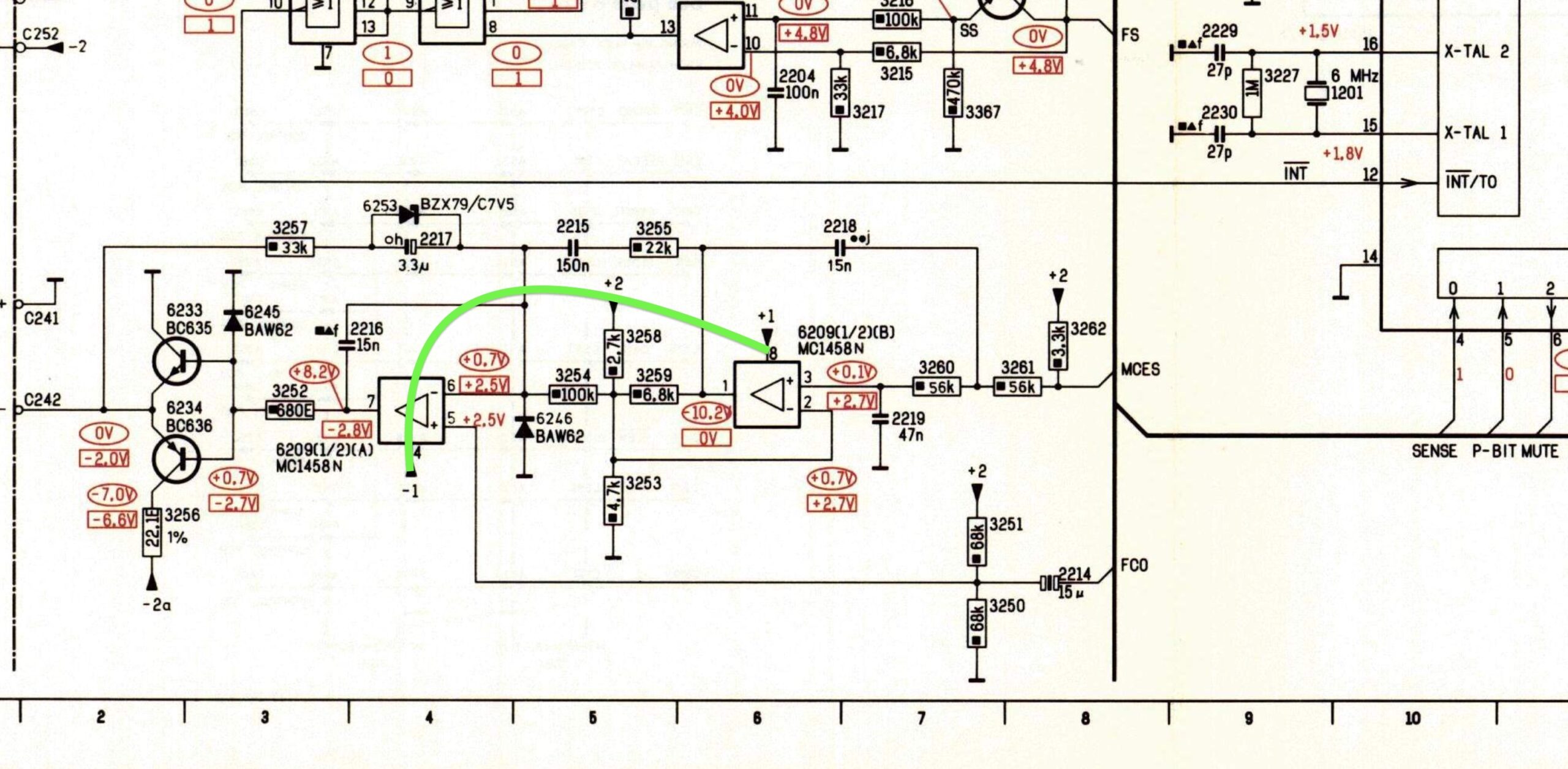
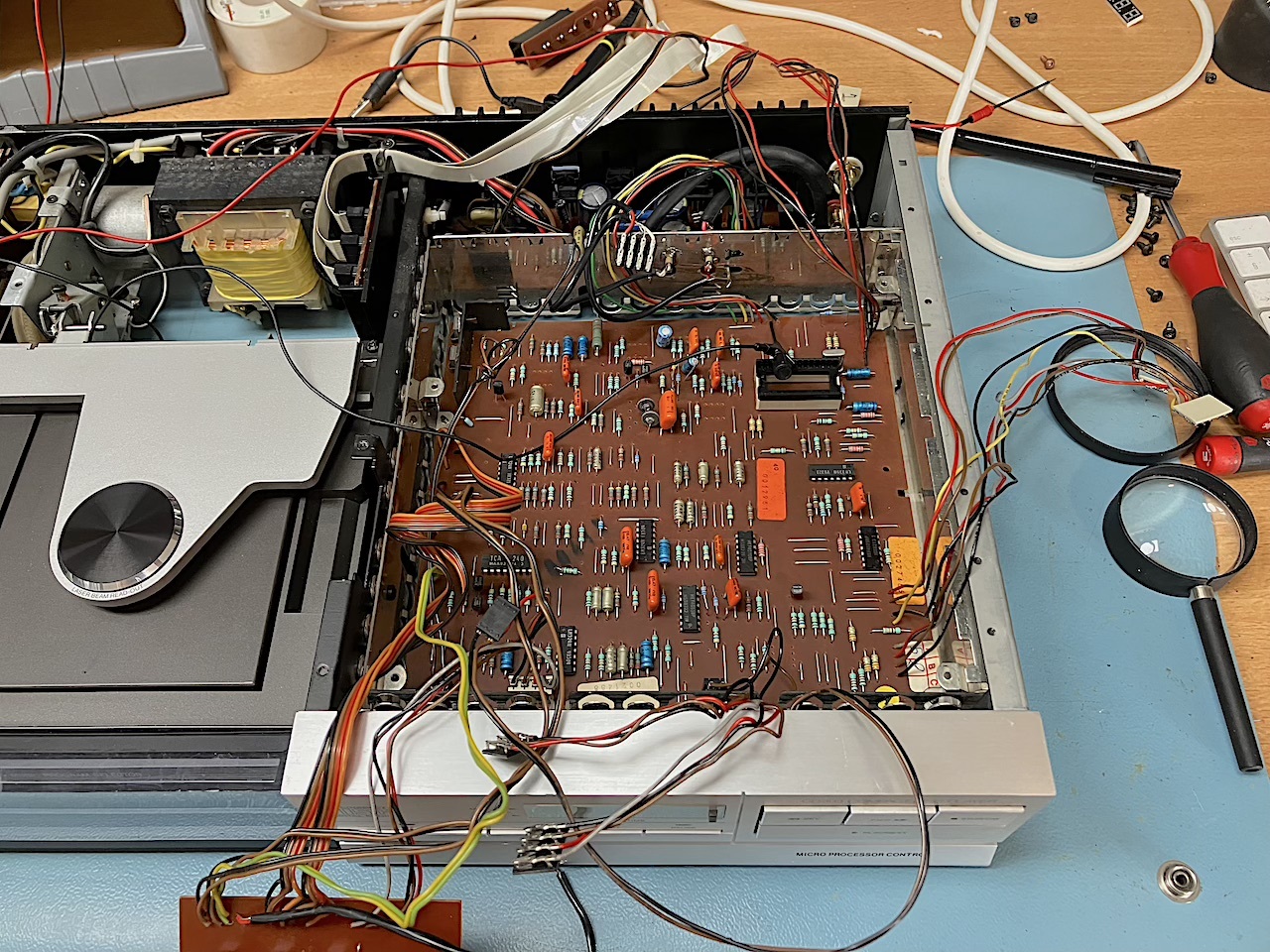
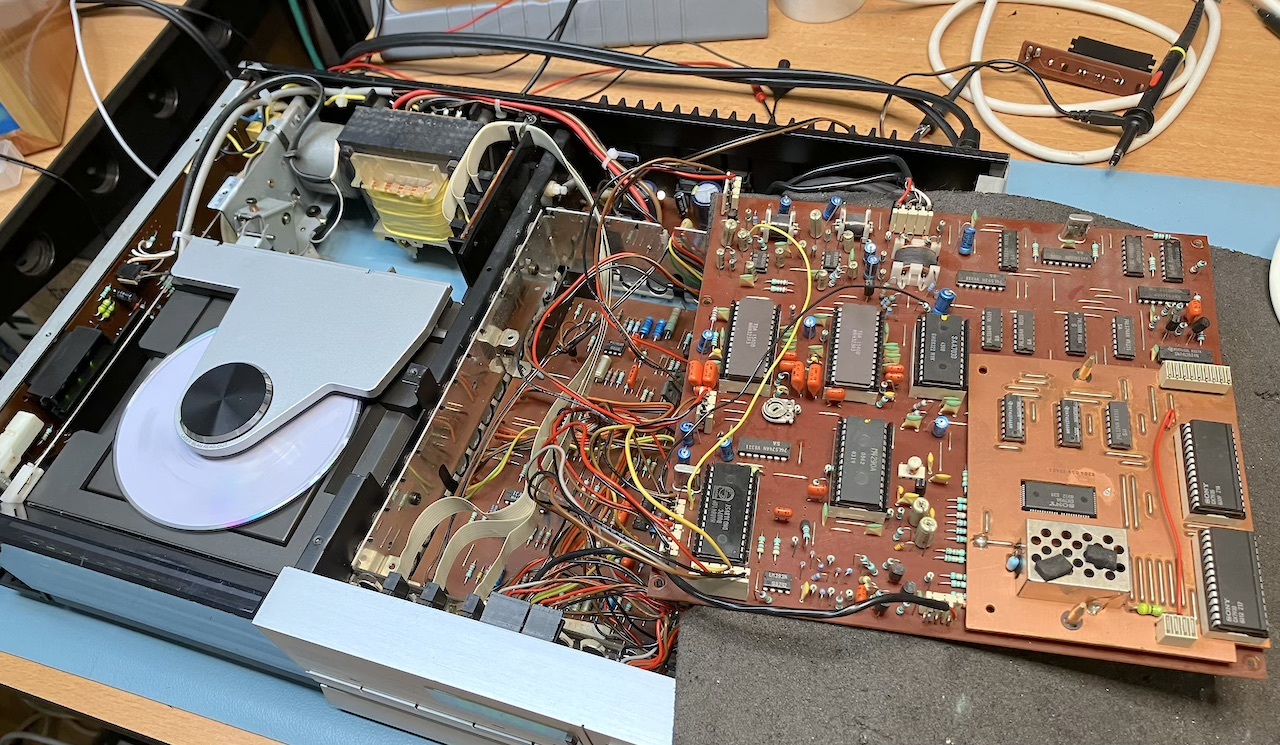
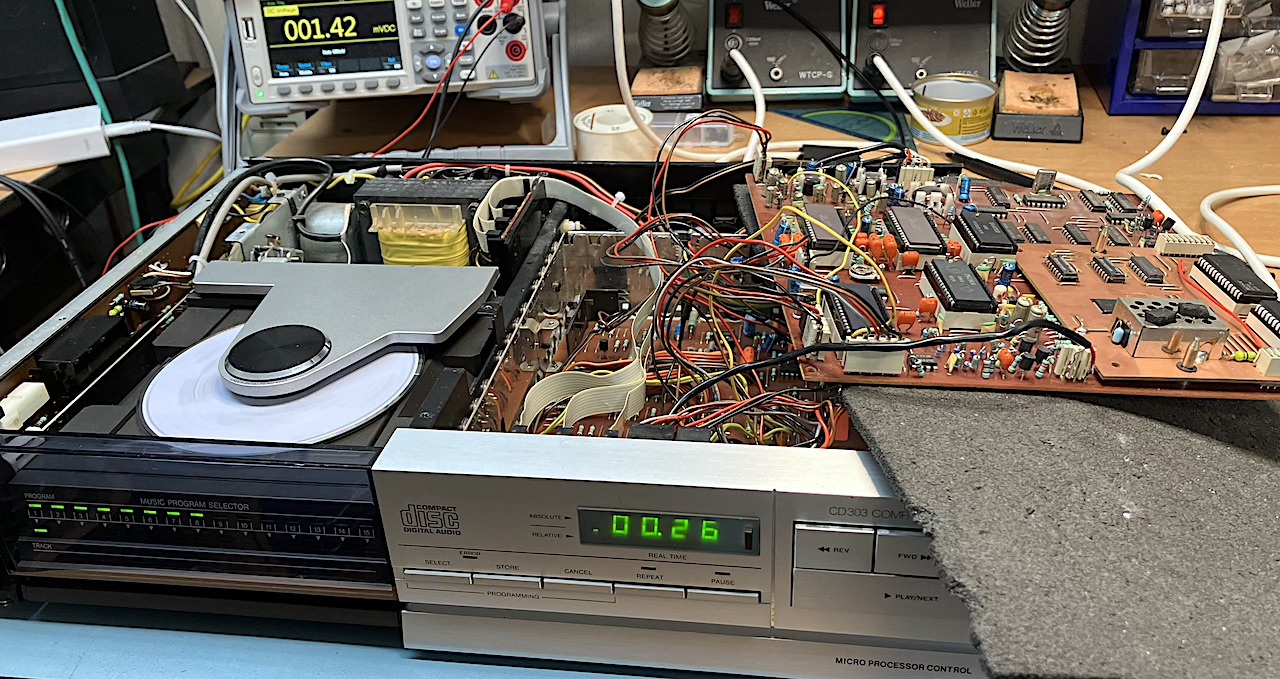
Okay it’s starting up , reading TOC , plays CD’s, but it stops after 30 minutes and it won’t start again , why.???
Pin 8 drops to +2 volts ?
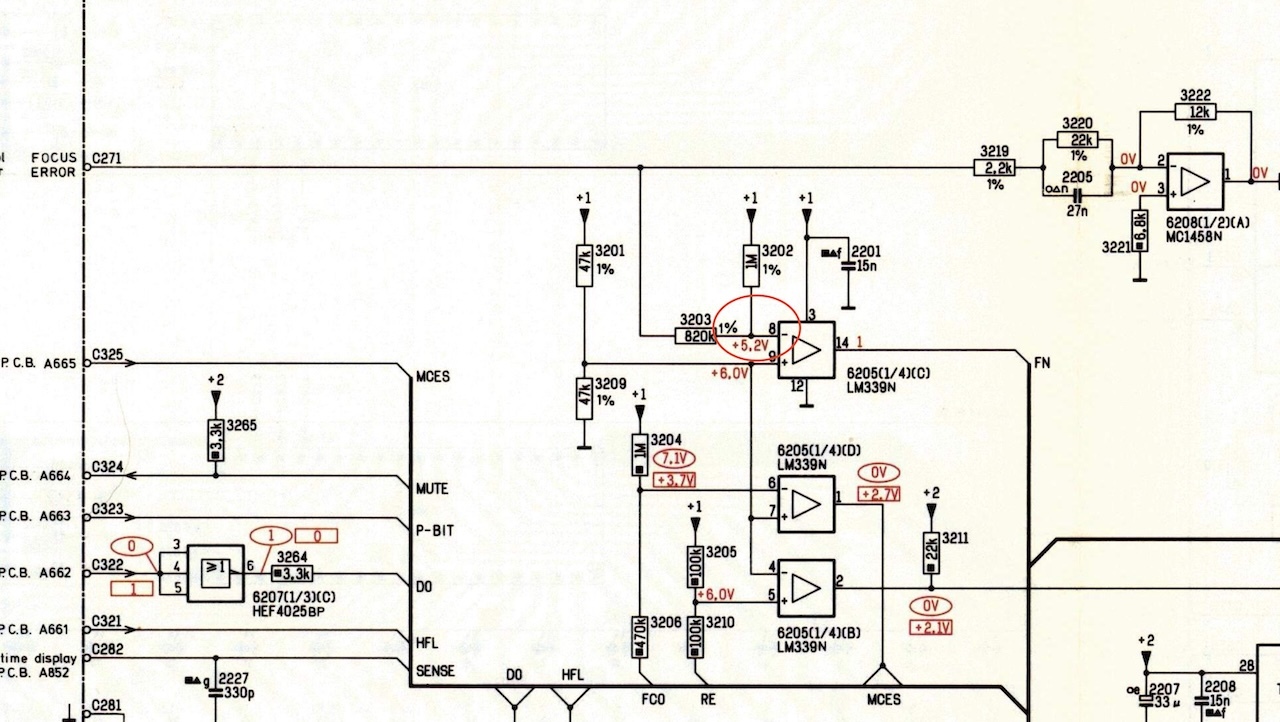
Pin 7
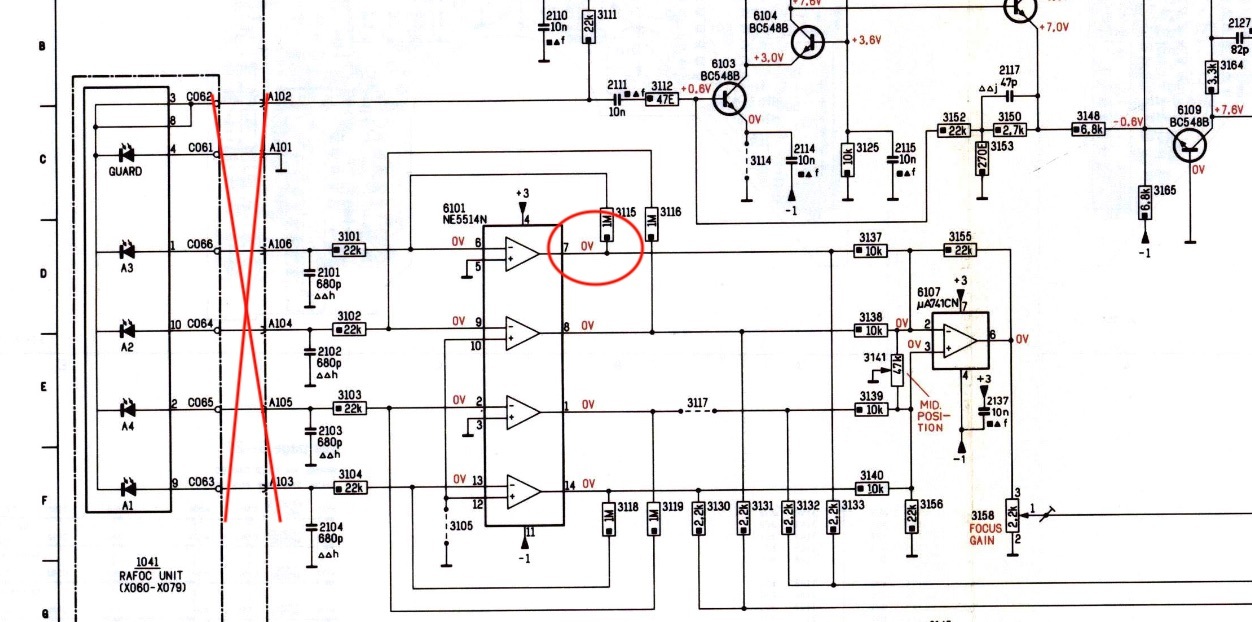
Replacing NE5514
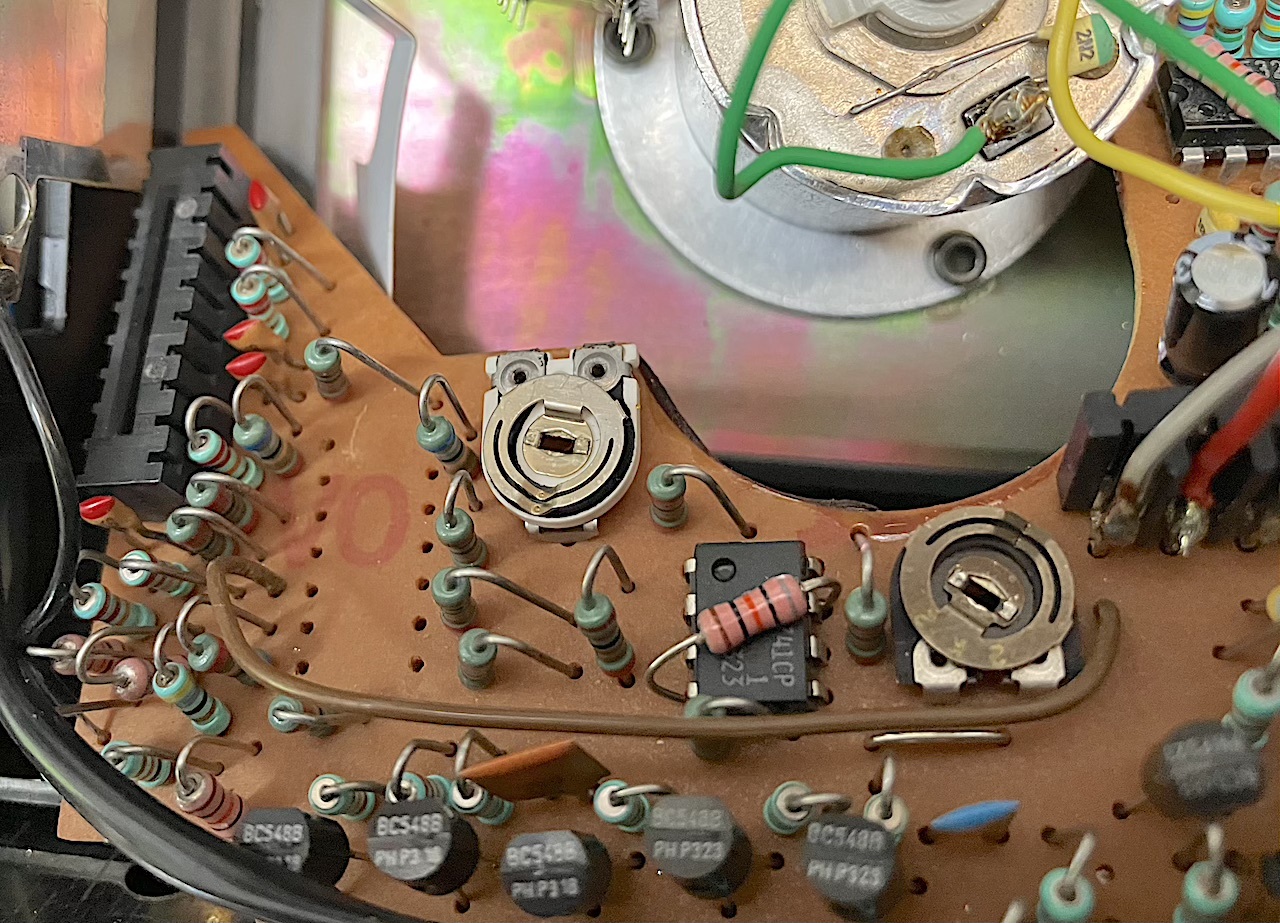
Signal again…
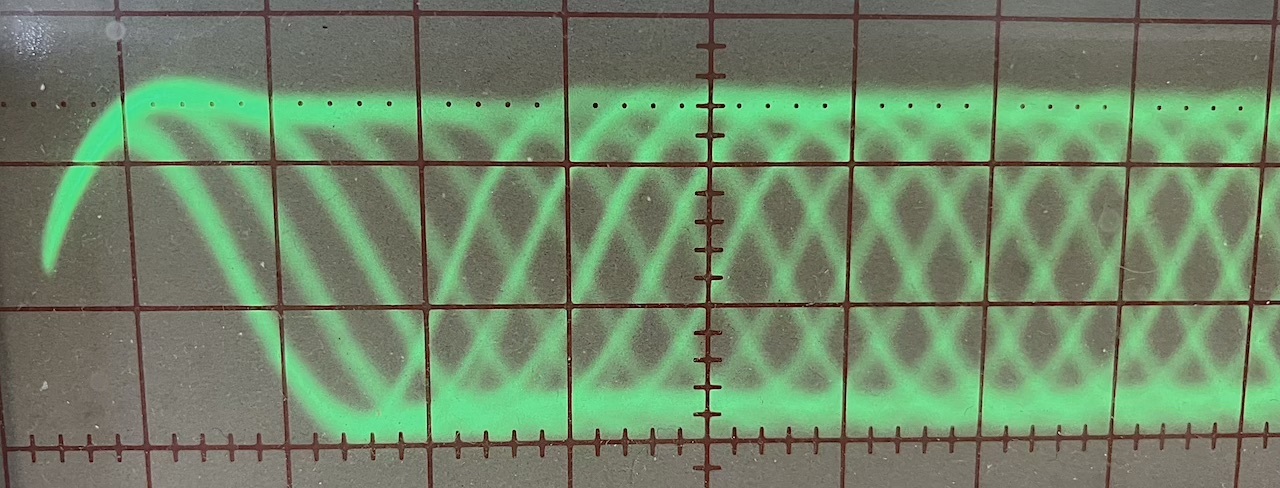
After Adjusting Disc height , Focus Offset , and Focus-band-width , playing Big scratchs on CD without problems 😉
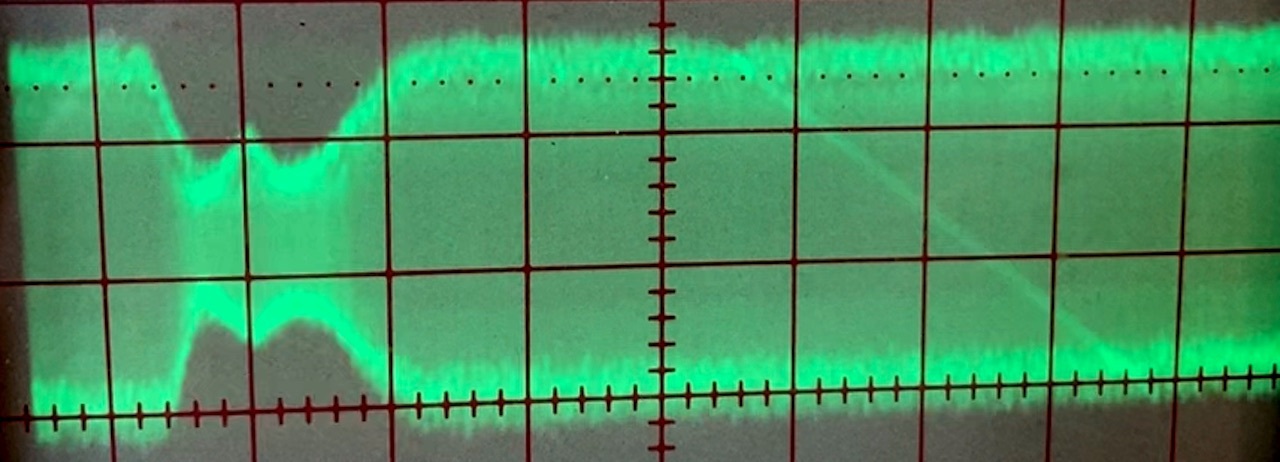
Tracking over 75 minutes Disc 🙂 , Radial and Focus servo working hard , Movie -> Tracking Disc over 75 Minutes
![]()
What a tough guy this CD303 pffffff. Also a defective HEF4025 in the track detector, which does something with DO (Dropout) and HFL (high frequency present), What does that FS do (?) sorry , I don’t even see it anymore, blackout…
We can normally “REV” and “FWD” again without going crazy
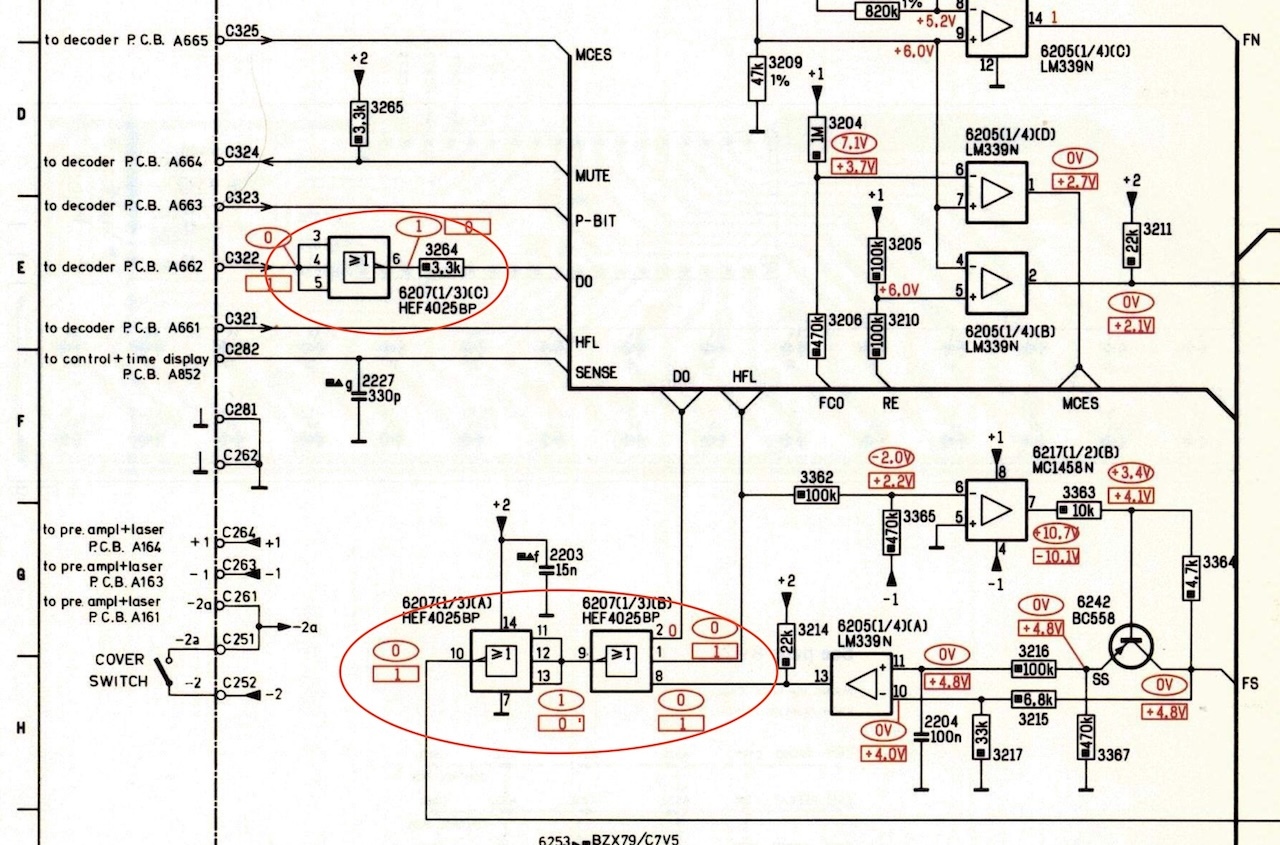
“Hi Bram , FS stands for Fast Sum, all DC signals from the detector after the preamp added together.
The Track Loss Detector, (TLD) is used as a capture aid for the radial tracking.
Track Loss is detected when:
1. Less HF signal is present, from the HF Detector
2. More light comes from the plate, derived from the FS signal
3. and no Dropout signal occurs, also from the HF detector.
On some plates, they “forgot” to write a piece of pits on the track, the so-called “white dropout”.
The circuit takes the average FS signal, and stores it in C2204, using switch (transistor) 6204. Via resistor division 3215, 3217 it is checked whether “more light” comes back.”
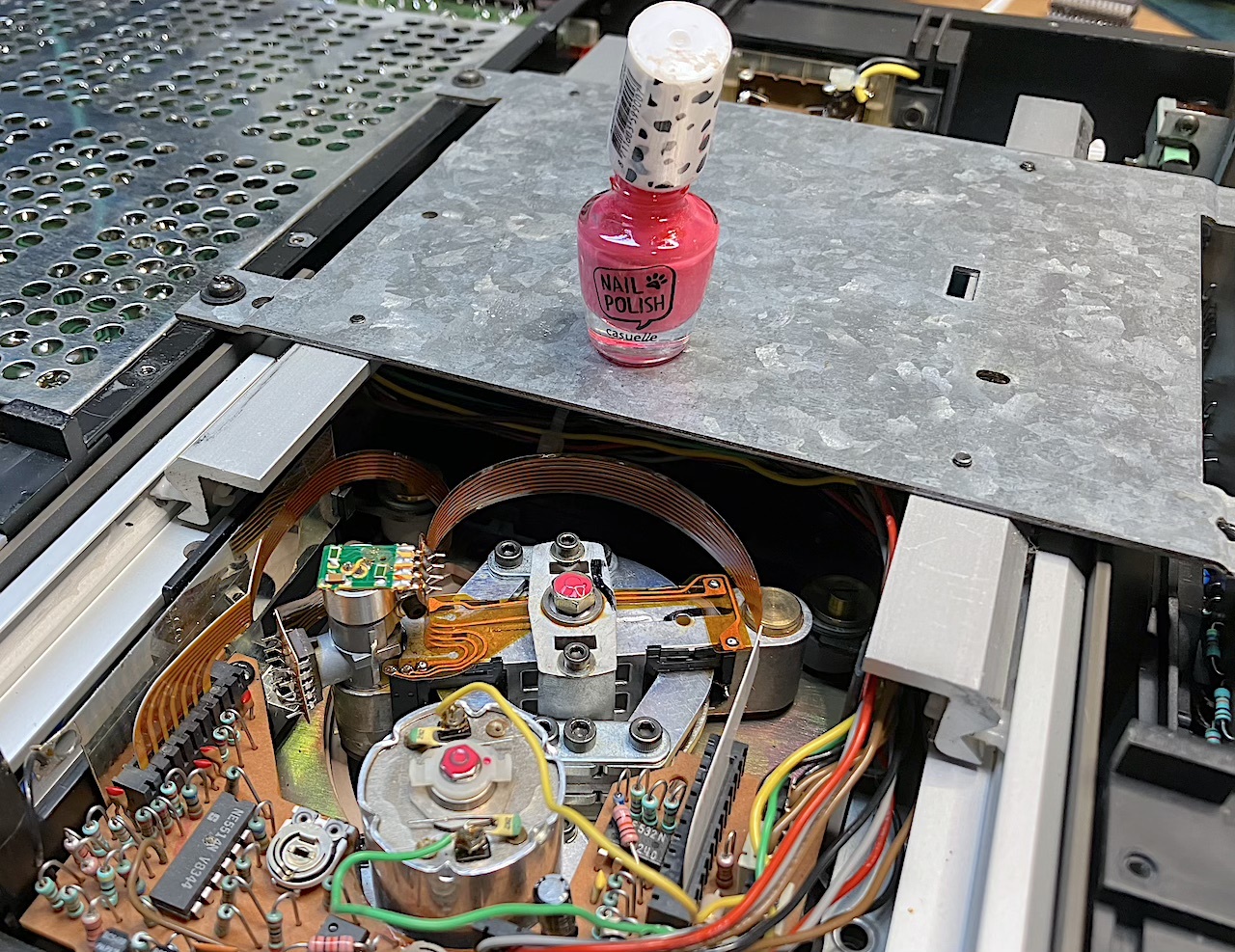
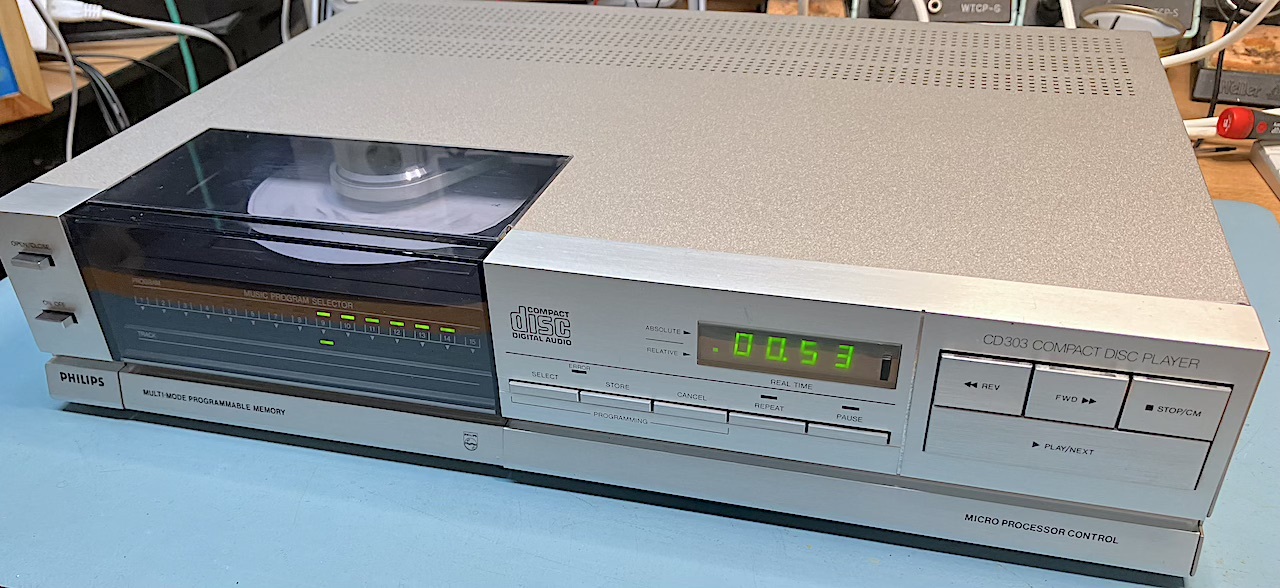
I know there shouldn’t be any difference with the CD 100 but I feel like this one sounds even better”
